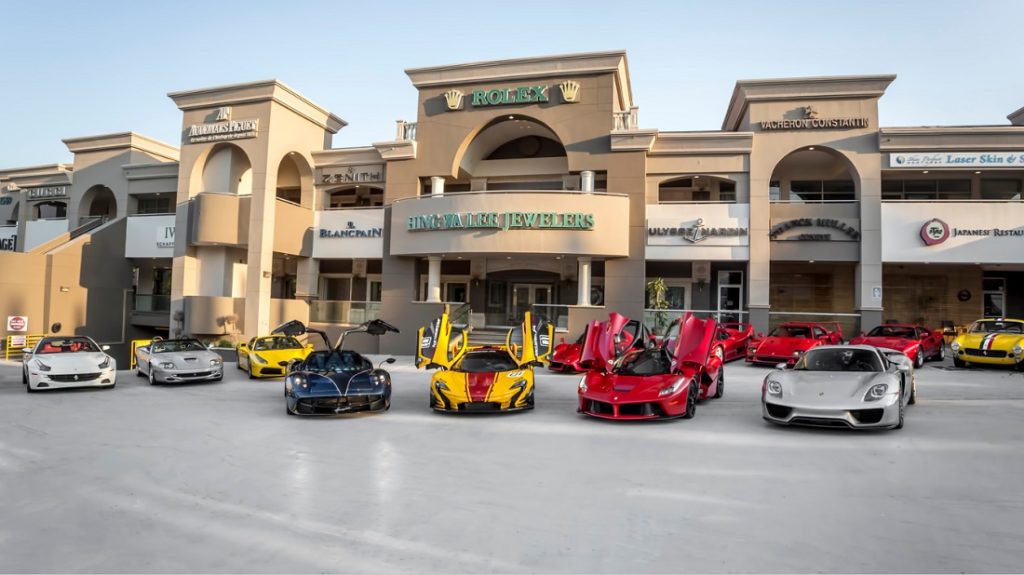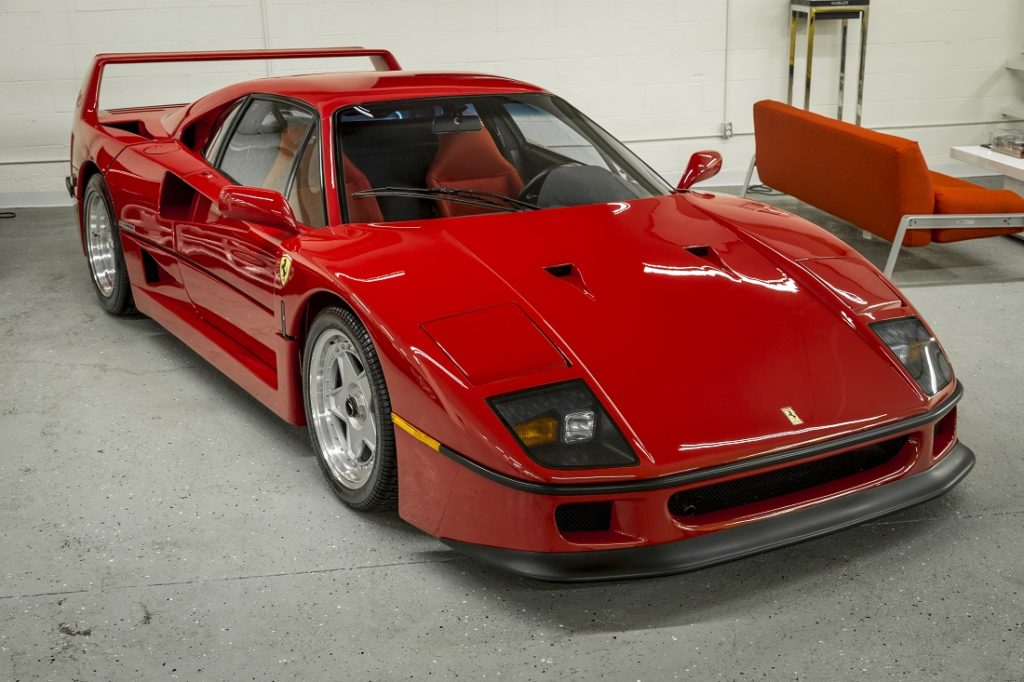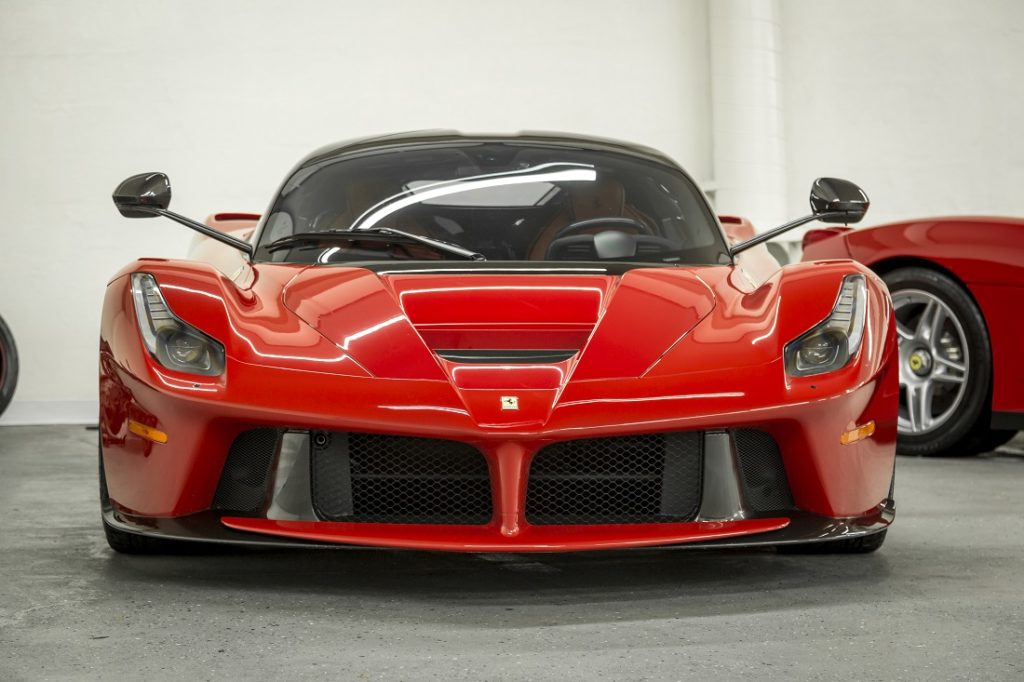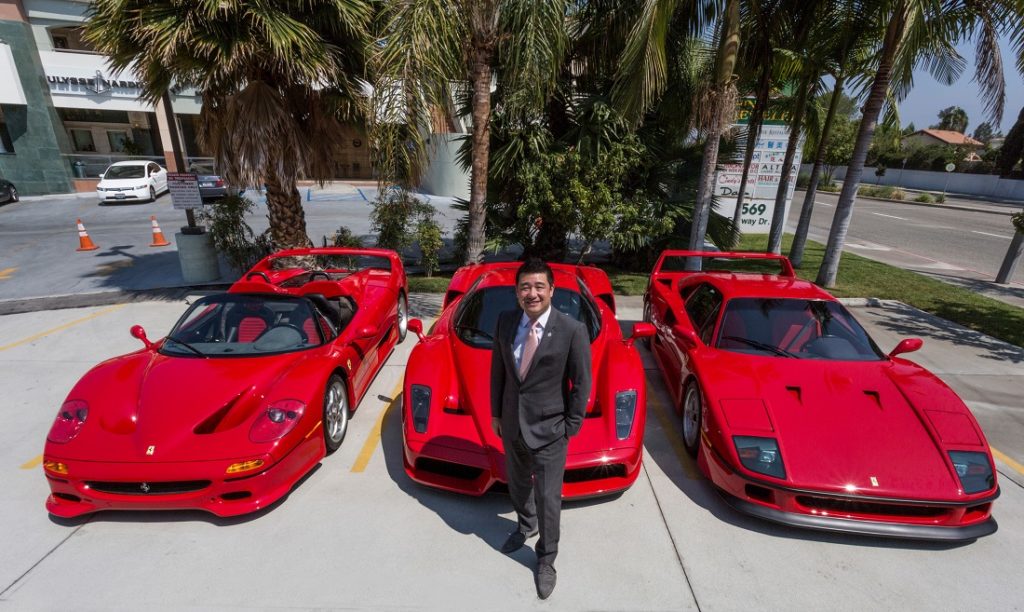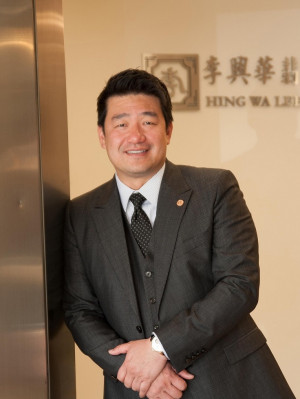
Contact Info
- Address:
- 1569 S. Fairway Dr., Walnut, CA 91789
- Phone:
- (909) 831-8888
- Homepage:
- http://ferraricollectordavidlee.com/
- Home » Retail & Shopping » Jewelry - Fashion
-




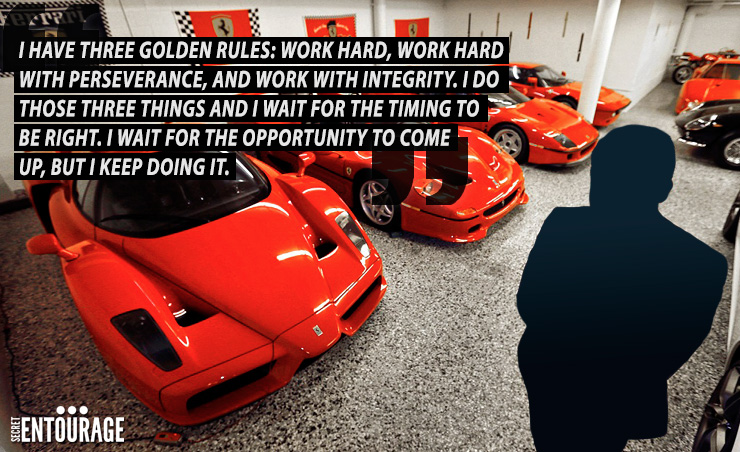 After working with his father and learning the industry David was able to open his own jewelry store and help build and grow the business his family started. This helped to kick off his entrepreneurial career.
After working with his father and learning the industry David was able to open his own jewelry store and help build and grow the business his family started. This helped to kick off his entrepreneurial career.
From there David was able to start investing in real estate and expand his portfolio. His passion for investing and cars lead him into the world of car collecting. Today David owns one of the most impressive car collections there is (specifically Ferrari). His garage holds models ranging from the 288 GTO to the latest LaFerarri, with a lot of others in between.
Cite: These following interview has been added from Secret Entourage — http://www.secretentourage.com/success-stories/david-lee/
You’ve recently become very active on social media. Why did you choose to start sharing what you do recently more so than in the previous years?
Well, I’ve been on Instagram for two years, now. The last two years have been a big learning experience because I really wasn’t into social media before. I had an Instagram for my business, Hing Wa Lee Jewelers, and decided to get into it just to understand it by first using a personal account just to play around with it. I am more of a marketing guy so I understand marketing concepts very easily and understand the benefits of social media. I just basically use it to understand it and then I realized it’s fun to share.
It started off just as a sharing idea but then it just evolved into a very fast growth of followers completely organically. I felt, at some point, that I could use it to help people. I took that approach to help people, to teach people, to encourage people, to inspire people. So, it’s really a glimpse of my life. That’s really what I use social media for.
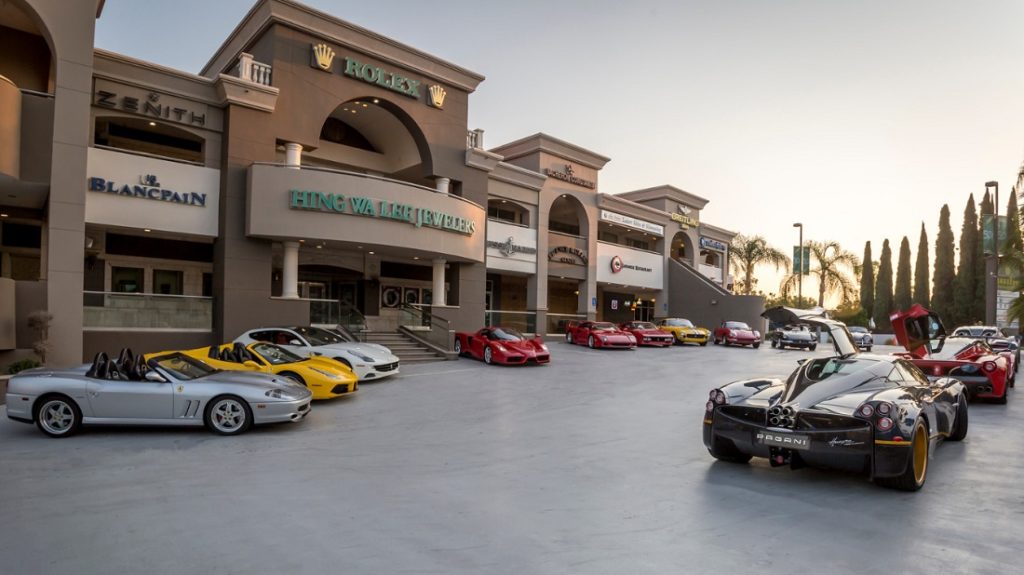
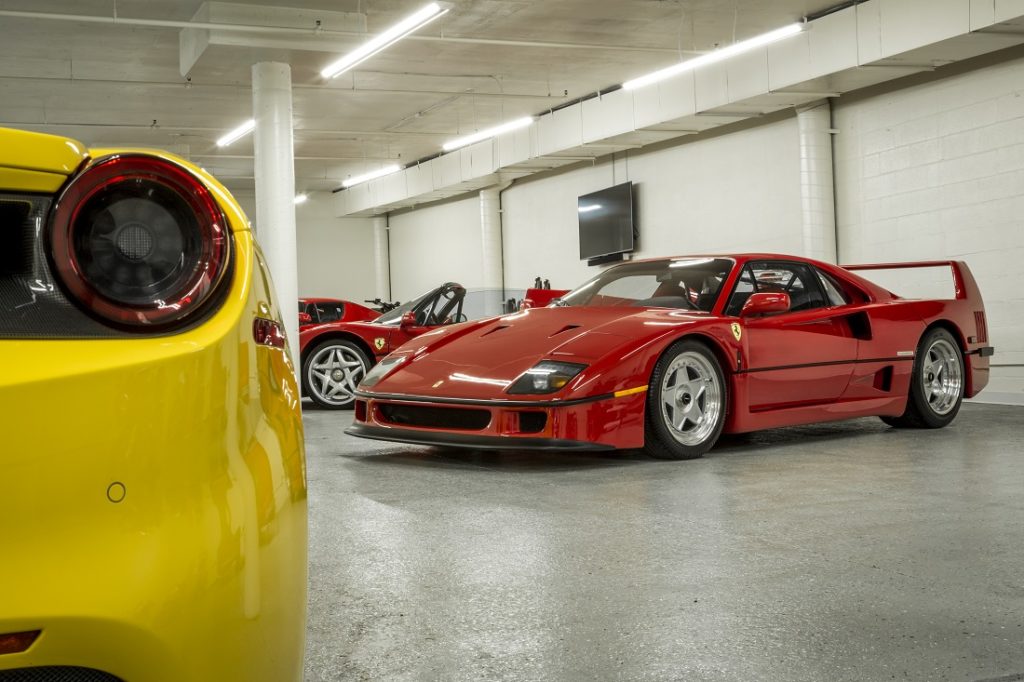
What drives your passion to be a teacher?
In the last couple of years as things evolved, I have become involved with USC more, I teach entrepreneurship as a guest teacher. From their social media accounts, I’m starting to understand young people a little bit more. I feel that there are many values that are lost in today’s people. I mean, yes, the environment has changed with the Millennial generation. It’s different than Generation X or even the Baby Boomers, but I think there are some values that are missing that I think would help the Millennial generation to be able to succeed, and so maybe it’s a little bit kind of a role that I wanted to play to try to influence the world to be a better world. To influence the world to certain proper values, a lot of people would say old-school values – proper values – that can make you a better person, to be a successful person.
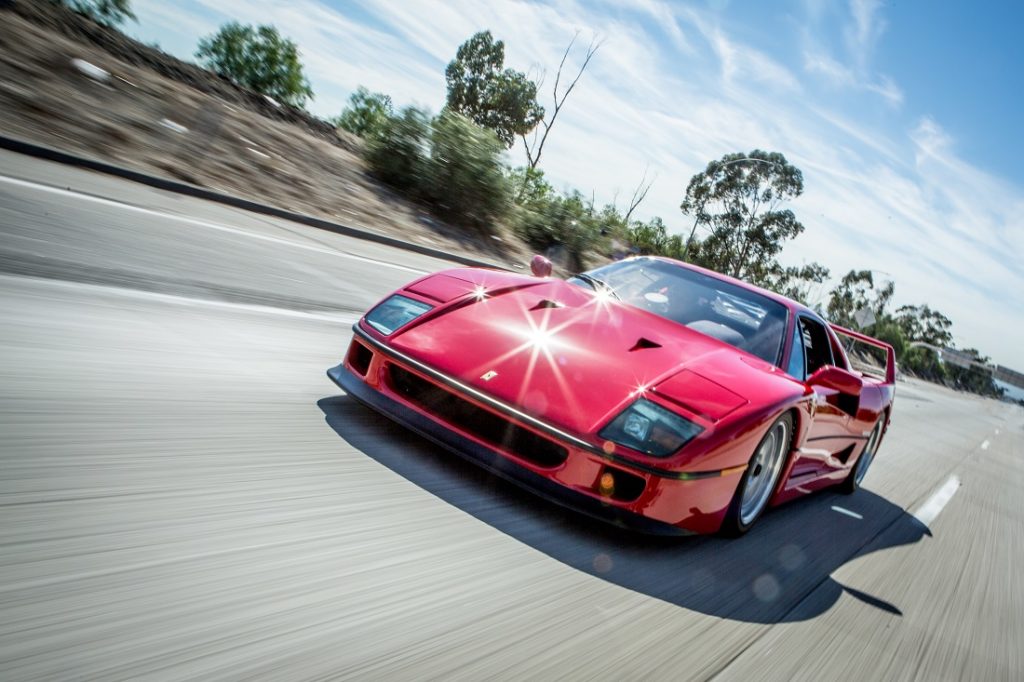
Is there someone in your life that you looked up to, such as a mentor or coach?
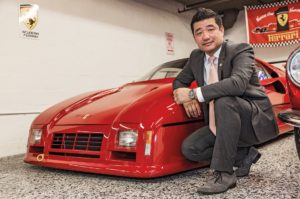 For me, my mentor was my father. Our conversations and communication was always focused on him teaching me something. He was old-school so that’s how he showed his love – it’s the only way he knew. I got the benefit of learning a lot on how to fit into this world, how to do business, and so forth.
For me, my mentor was my father. Our conversations and communication was always focused on him teaching me something. He was old-school so that’s how he showed his love – it’s the only way he knew. I got the benefit of learning a lot on how to fit into this world, how to do business, and so forth.
Your father was a business man, did he have an impact on you also becoming a successful business man?
There are articles such as Forbes and others that say my father came from China with nothing, and this is pretty accurate. He basically smuggled himself into Hong Kong, 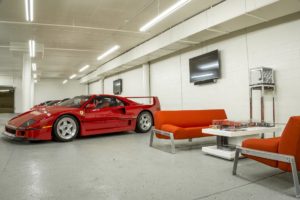 became an apprentice to a gem stone carver for five years, then came and started his own gem stone carving factory. He eventually moved to the U.S. and got into the manufacturing and wholesale business. He did very good for himself from where he came from. In the 80’s, he changed gears to manufacturing jewelry. He was very frugal and only had a couple of employees. When he saved enough money, he bought an apartment complex for rental income. He figured that would be his way to retire.
became an apprentice to a gem stone carver for five years, then came and started his own gem stone carving factory. He eventually moved to the U.S. and got into the manufacturing and wholesale business. He did very good for himself from where he came from. In the 80’s, he changed gears to manufacturing jewelry. He was very frugal and only had a couple of employees. When he saved enough money, he bought an apartment complex for rental income. He figured that would be his way to retire.
While I was growing up, I did help my father and so I learned the industry well enough.
When I graduated from USC and their entrepreneurship program, I joined my father’s business. 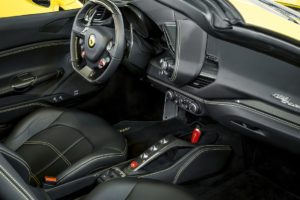 That was when there was a major real estate recession in the U.S. Nobody was buying anything. If you sold stuff, you couldn’t collect. It was a very difficult time. I was doing the shows that my father was doing where you travel every weekend to a different city in the United States and sell to the local jewelers there. That was difficult because everywhere, people weren’t buying. We were losing money.
That was when there was a major real estate recession in the U.S. Nobody was buying anything. If you sold stuff, you couldn’t collect. It was a very difficult time. I was doing the shows that my father was doing where you travel every weekend to a different city in the United States and sell to the local jewelers there. That was difficult because everywhere, people weren’t buying. We were losing money.
I began understanding the situation. I told my dad, “We really need to change the business model and focus on retail.” My dad says, “Well, okay. Where would you want to do it? What kind of thing would you do?” I said, “Dad, just trust me and let me go with it,” and he did. I went and opened my store in San Gabriel. I rented a place, opened the store, and created how the design of the store is.
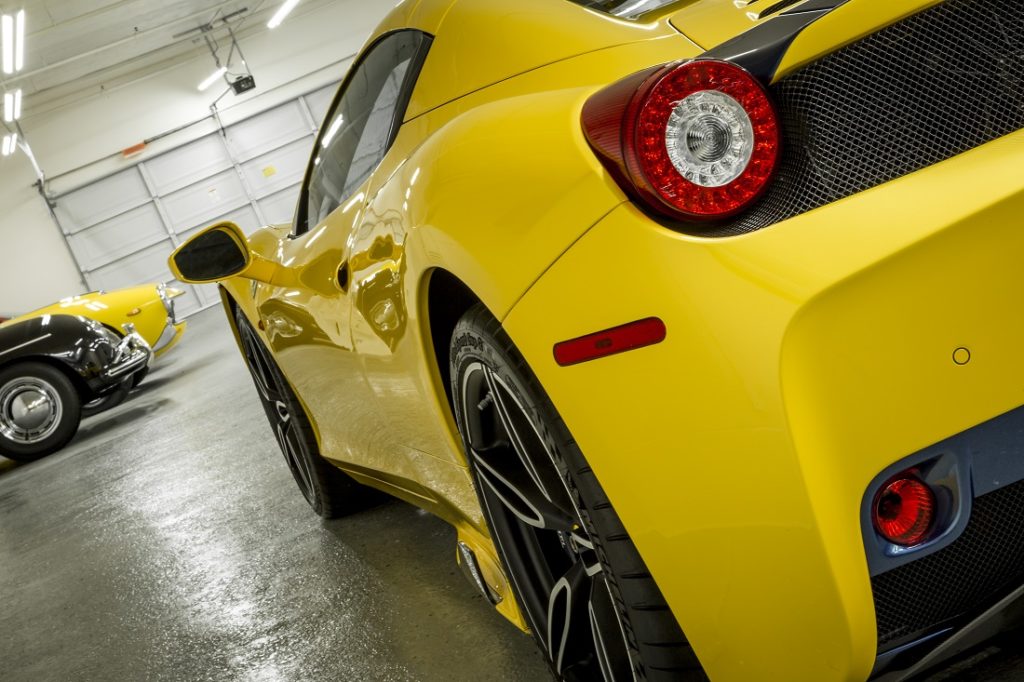 I hired the first employees. I knew I needed a lot more people than we had in the wholesale operation which doesn’t need to have a lot of people. I knew we needed sales people, purchasing people, accounting people, and so on. Of course, being a new company, we couldn’t financially do that. So, I had to wear all those hats. I had to be the guy that buys, the guy that sells, the guy that does the accounting and the marketing. There was just a lot more going on being in the retail business.
I hired the first employees. I knew I needed a lot more people than we had in the wholesale operation which doesn’t need to have a lot of people. I knew we needed sales people, purchasing people, accounting people, and so on. Of course, being a new company, we couldn’t financially do that. So, I had to wear all those hats. I had to be the guy that buys, the guy that sells, the guy that does the accounting and the marketing. There was just a lot more going on being in the retail business.
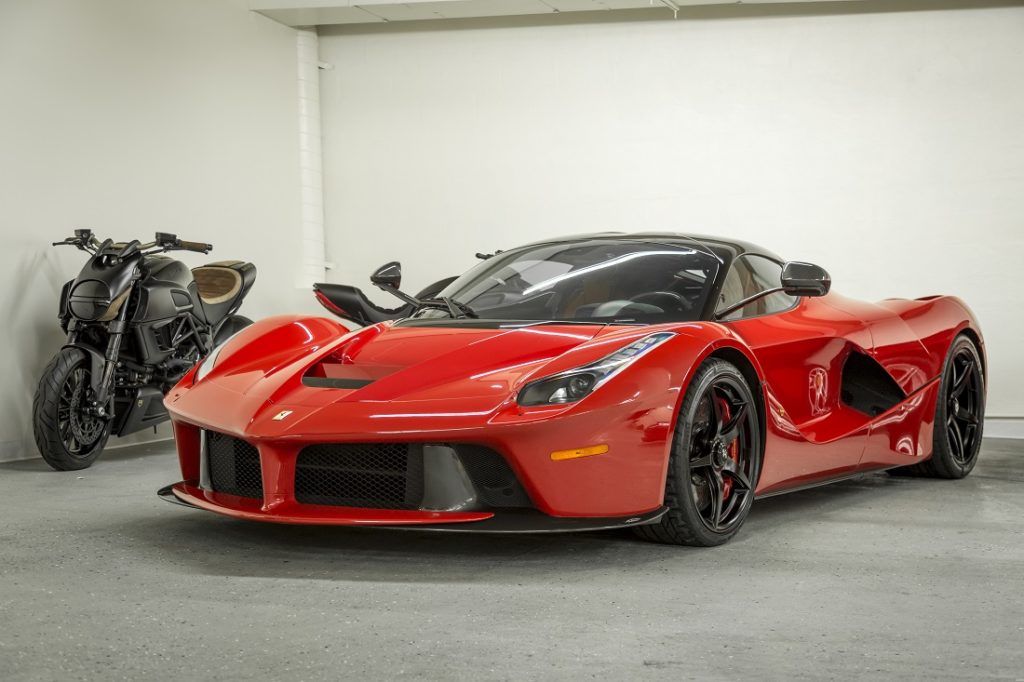
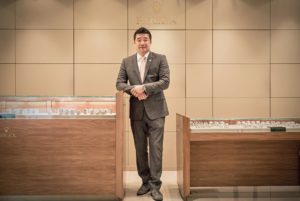 There were a lot of sacrifices. I was working seven days a week. I was the first one to be there at the store and the last one to close because I was responsible for the store. I did not want to fail and my dad say, “I trusted in you and we failed.” I wanted to really show him that I could do this, that this was a good idea and we could do it. I started going after watches. We were never in the watch business before and I just wanted to get the off-price dealer.
There were a lot of sacrifices. I was working seven days a week. I was the first one to be there at the store and the last one to close because I was responsible for the store. I did not want to fail and my dad say, “I trusted in you and we failed.” I wanted to really show him that I could do this, that this was a good idea and we could do it. I started going after watches. We were never in the watch business before and I just wanted to get the off-price dealer.
There is a whole story about it and how it succeeded, but it really was a partnership between my father and I that we could build a business together. The business was much smaller back then. It was comfortable.
I grew up in a middle-class family so we weren’t really struggling, but financials could be better. Together, with my father, we built the business. I concentrated on the retail side of the business since I joined in 1990 and he concentrated on the real-estate side. The money I made from the jewelry business, he invested into the real estate business. Of course, I reinvested into the company to expand it, but it was really a partnership of both that resulted in what we have today.
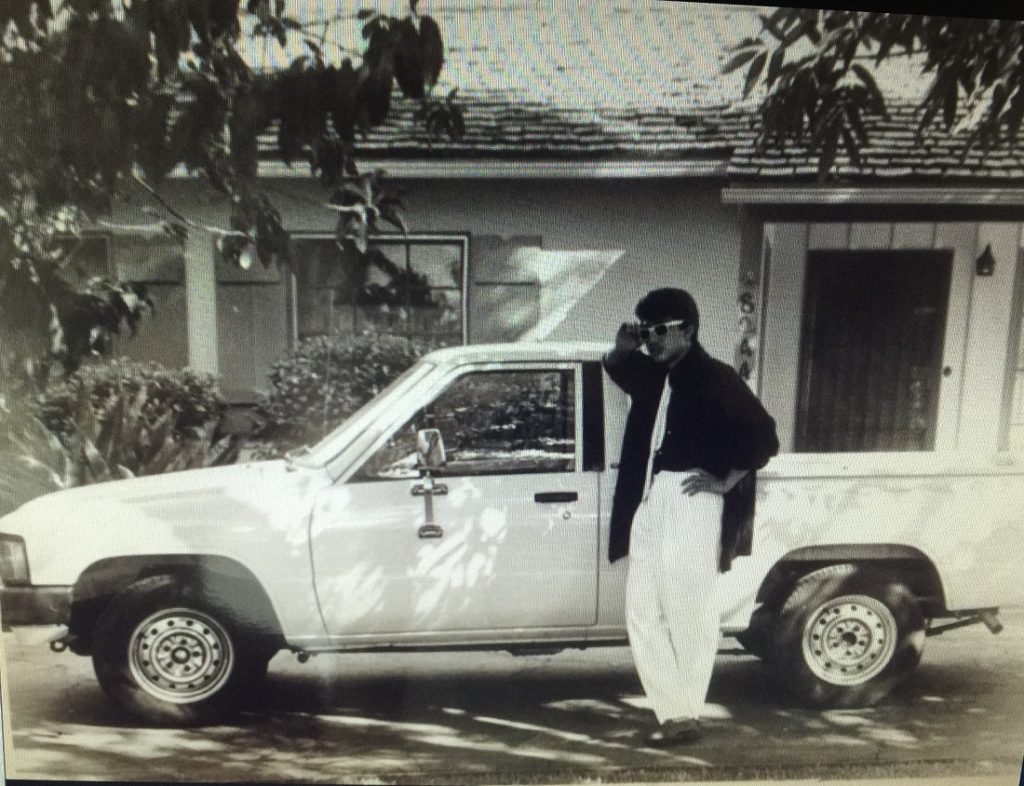
My father passed away five years ago, so now I’m the chairman and head of all the family estates and all the businesses. At the time when he was still alive, we were acting together. If not for my part in building the business, getting Rolex franchises, getting Cartier, and boosting the business and producing profits, he would not have had the money to invest into real estate. I did my part and he did his part. To make money is good, but to also have money work for you and profit, that’s the important part. A lot of people know how to make money but they don’t know how to invest it. That’s our story in a nutshell.
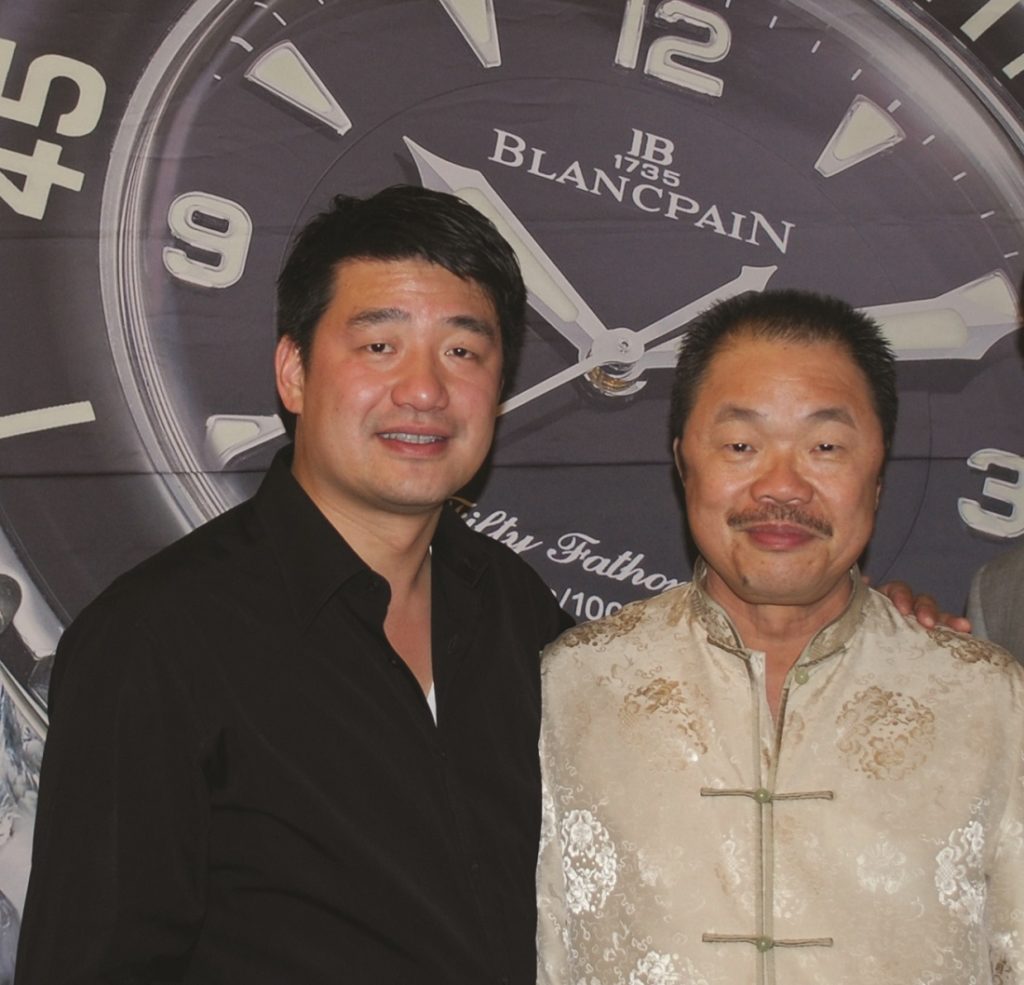
“GAINING EXPERIENCE IN NEW AREAS IS HOW EACH GENERATION LEARNS. SMARTPHONE APPS, SOCIAL MEDIA AND ALL THESE NETWORKING PLATFORMS WERE NOT AVAILABLE WHEN I WAS GROWING UP. THEY WERE NOT THERE WHEN I WAS BUILDING A BUSINESS.” – DAVID LEE
What is the key to a good partnership between someone who has worked at something quite some time and yet having new blood come into the business with new ideas without having proven themselves with a decade of hard work?
That’s a very good question and I studied this area very deeply and thoroughly. I’m trying to help USC to develop this area, as well. It takes a conscious effort on both sides: the patriarch side and the new guy coming in. First, I want to say that there is power in family business. It’s a powerful thing that, if done right, it can be very good compared to just becoming partners with someone that you don’t know. However, it’s also very complicated. You have various problems that exist. I would say that I think the parent, or the “father”, of the business needs to set it up correctly in a way to allow the next generation to come in seamlessly.
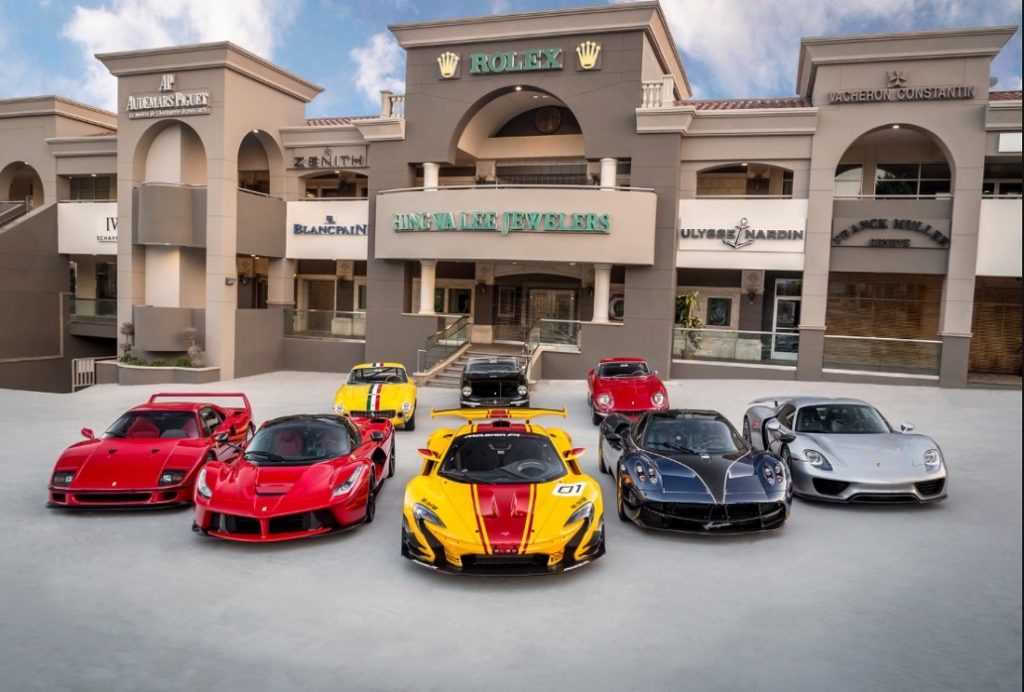
 I’m the second generation and my father is the first generation. My son will be the third generation – if he wants to come in. Now, how would I perceive that? For me, I would say that my son should make sure he gets plenty of education because education is important. A lot of things get covered that you won’t have to backtrack and learn it or pay somebody to learn it, but you are able to learn in school and apply that knowledge without skipping a beat.
I’m the second generation and my father is the first generation. My son will be the third generation – if he wants to come in. Now, how would I perceive that? For me, I would say that my son should make sure he gets plenty of education because education is important. A lot of things get covered that you won’t have to backtrack and learn it or pay somebody to learn it, but you are able to learn in school and apply that knowledge without skipping a beat.
That’s the foundation of what you use in business. Then you go in and gain experience. Gaining experience in new areas is how each generation learns. Smartphone apps, social media and all these networking platforms were not available when I was growing up. They were not there when I was building a business. So, this new generation, if you don’t grow with the changing world, you regress and that’s another problem. The next generation will be more in tune with that and they should be able to bring new ideas back to the company and add more value.
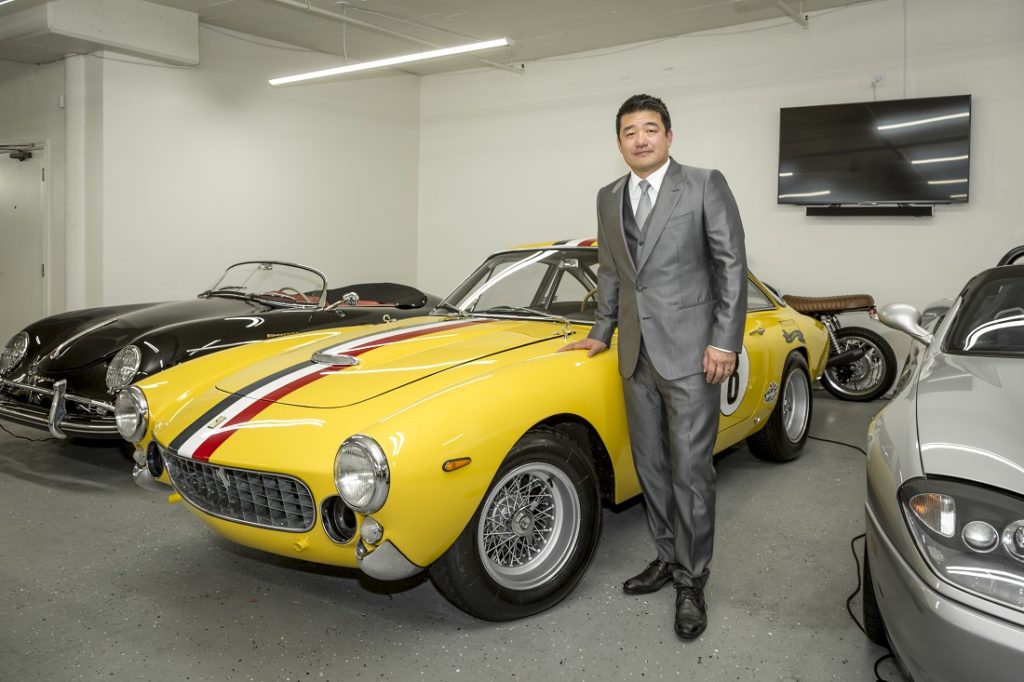
Many family businesses find obstacles in the new generation wanting to make changes and the older generation being against change. What is your take on this?
They shouldn’t look at it as, “Maybe I should just change the company.” They shouldn’t have to change anything. For me, I have been doing this for 27 years so I know what I’m doing. It’s doing good so why change it? I would be reluctant to change when I know it works well, right? If you come in adding a value, bringing in a new business, bringing in a new line of business, a new product, a new distribution of business, and/or a new way of business which adds value, then you’re not changing anything. You’re just bringing more to the table.
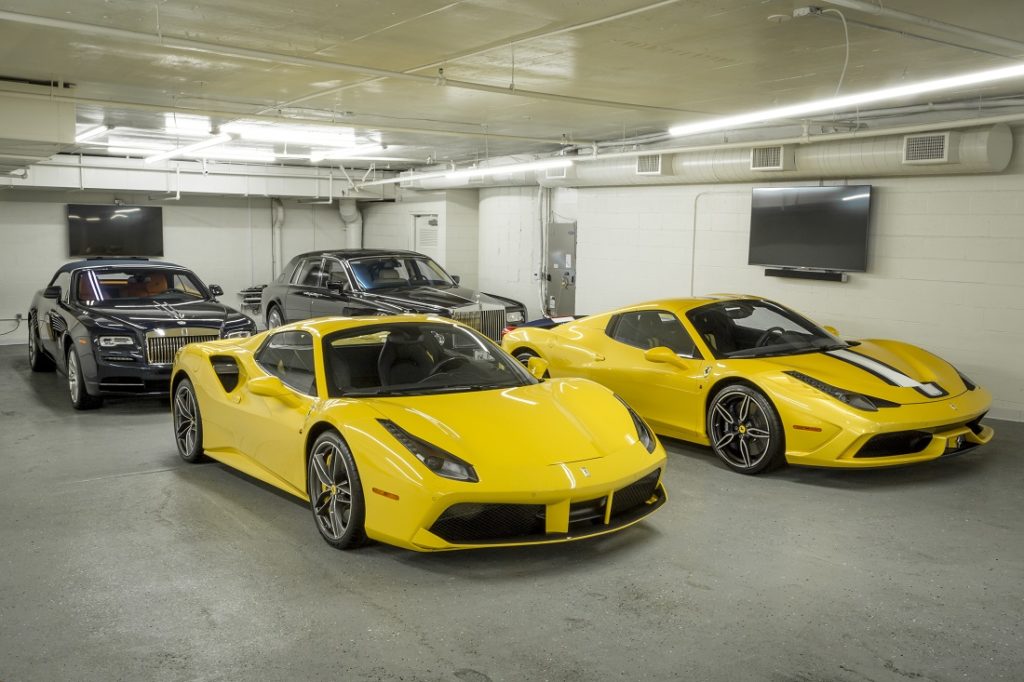
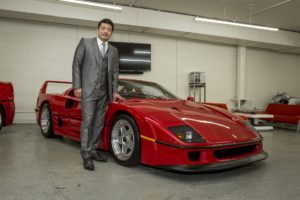 I think that this is something that would be agreeable for the next generation. They can do something that is their idea, that’s their baby just like it was for me when I came in. Yes, I changed the business model because it needed to be changed, but it was my baby that was the retail stores. My son can come in and it could be some new platform, a new business that he runs and he fully believes in, can understand and make it work.
I think that this is something that would be agreeable for the next generation. They can do something that is their idea, that’s their baby just like it was for me when I came in. Yes, I changed the business model because it needed to be changed, but it was my baby that was the retail stores. My son can come in and it could be some new platform, a new business that he runs and he fully believes in, can understand and make it work.
That will be fine because that will be a new added piece to the business where I’m still continuing with what I’m doing, but I will have to trust him. I will have to trust in him and support him. I also cannot make him do just what I have been doing. I feel that him doing what I’m doing is kind of evolving regression. The company needs to move forward. When there’s no change, you’re regressing. We need to always evolve. It’s a constant evolution for the necessary future.
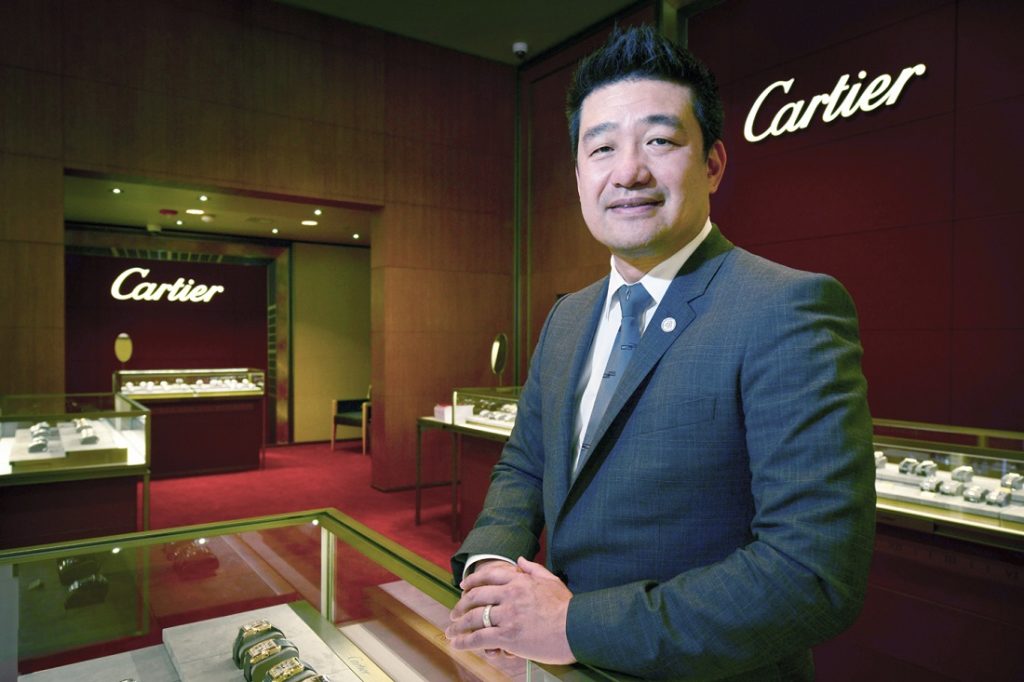
You mention that evolution and growth is necessary in business, but you say the next generation shouldn’t jump on board with the focus of changing everything. Can you speak as to what was the key for you to making those successful moves?
Well, again, my father had a really good understanding and skill on the jewelry side. Therefore, I didn’t change that. We still had the jewelry. I didn’t say, “Let’s stop doing jewelry,” we added a different component. Now it’s retail, which he understood, because retail is cash and carry. Somebody pays and then you give them the product. That was it. It was in a market that we believed in. It was an Asian market in L.A., which is a niche market. It wasn’t competing against the mainstream affluent markets like in Beverly Hills or New Port Beach, it was a new market.
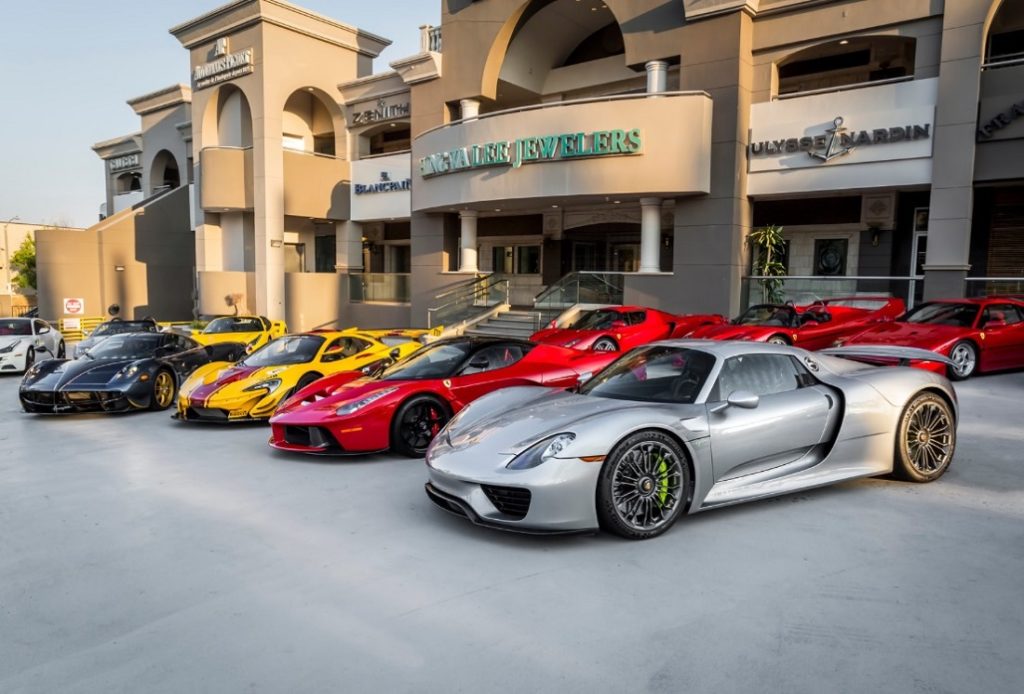
Introducing watches to that market at that time, people believed, “Oh, it’s not going to make a ton of money, it just kind of draws traffic,” and so forth. However, in terms that when you bring in the off-price issue, which is a very difficult thing, it was like the car company where you bring in a Toyota dealership, Mercedes, or Porsche.
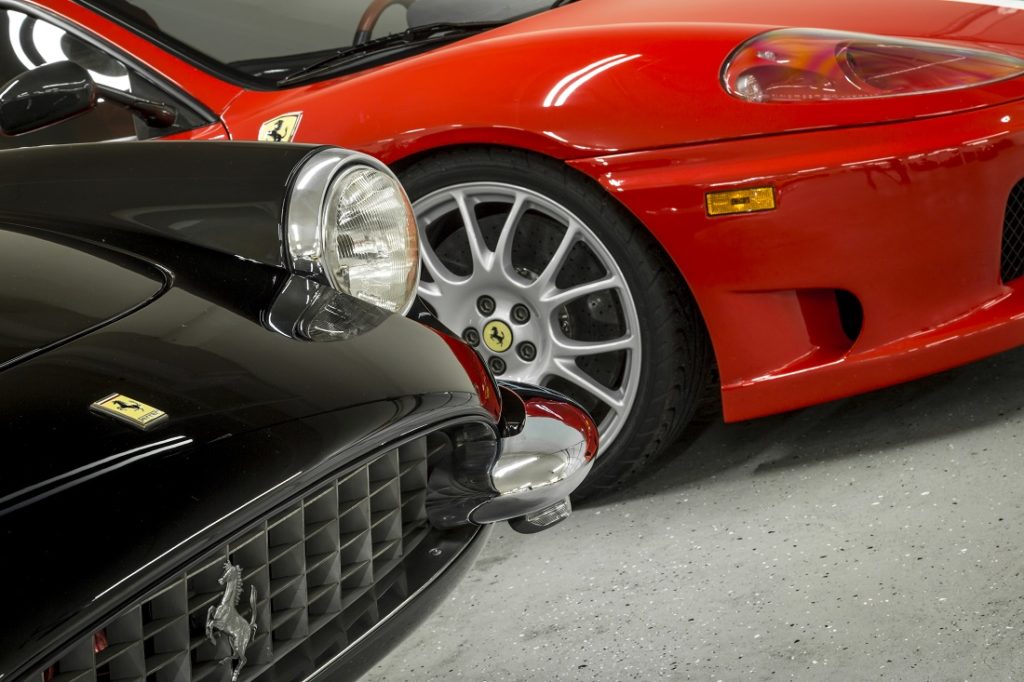
In every dealership, there’s a lot of work to bring that in, to have that agreement, and so forth. In that process when I opened the stores in 1993 and in 1995, I got the Rolex dealership. A Rolex dealership is a very important industry. We knew if we tried Rolex, that you can guarantee that you won’t go out of business. It covers the basics. Also, whoever had the Rolex dealership, you are considered one of the best stores in the nation to have that dealership because they are very careful and selective. They don’t just give it to everybody. In getting that, it took a lot of hard work. It took a lot of “out of the box” thinking. It took a lot of perseverance and thick skin. It took a lot of integrity and it took a little bit of so called luck and timing because it was the right timing that Rolex wanted to close all the chain stores and come back with being independent. It was the right time.
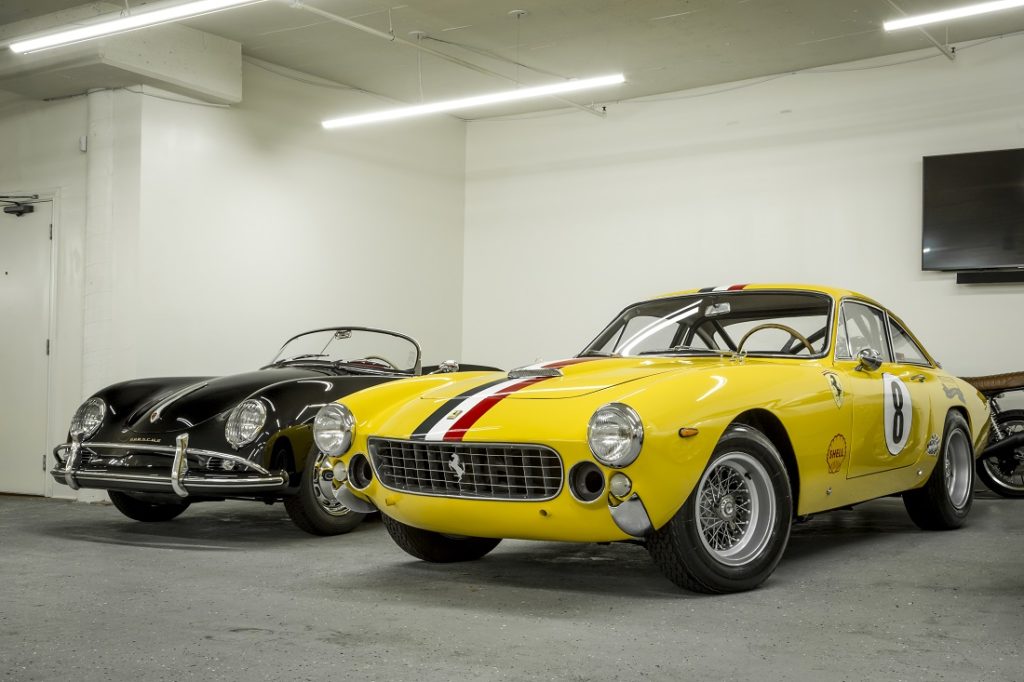
Do you believe in working smart or working hard and how do you apply that to your life?
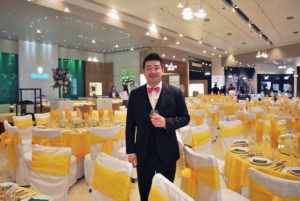 I have three golden rules: work hard, work hard with perseverance, and work with integrity. I do those three things and I wait for the timing to be right. I wait for the opportunity to come up, but I keep doing it. If I don’t do those and when the timing is right, then maybe I don’t hit target. I have to be constant and that’s where it comes together. Nowadays, some people would say, “Work smart, not hard.” I tell them, “I’m sure you want to work smart, but the thing that you may not know is no matter how smart you are, there is always somebody working smarter.
I have three golden rules: work hard, work hard with perseverance, and work with integrity. I do those three things and I wait for the timing to be right. I wait for the opportunity to come up, but I keep doing it. If I don’t do those and when the timing is right, then maybe I don’t hit target. I have to be constant and that’s where it comes together. Nowadays, some people would say, “Work smart, not hard.” I tell them, “I’m sure you want to work smart, but the thing that you may not know is no matter how smart you are, there is always somebody working smarter.
I assume everybody is going to work as smart as they can, but there are other people who will do it better. Therefore, the working hard with the perseverance and the integrity, opening your eyes for opportunities and when the timing comes, it will all comes together. For me, the Rolex dealership was, in a way, how I knew that everything came together. We got the dealership in 1995, which was incredibly quick for being a new store, and everything happened from there.

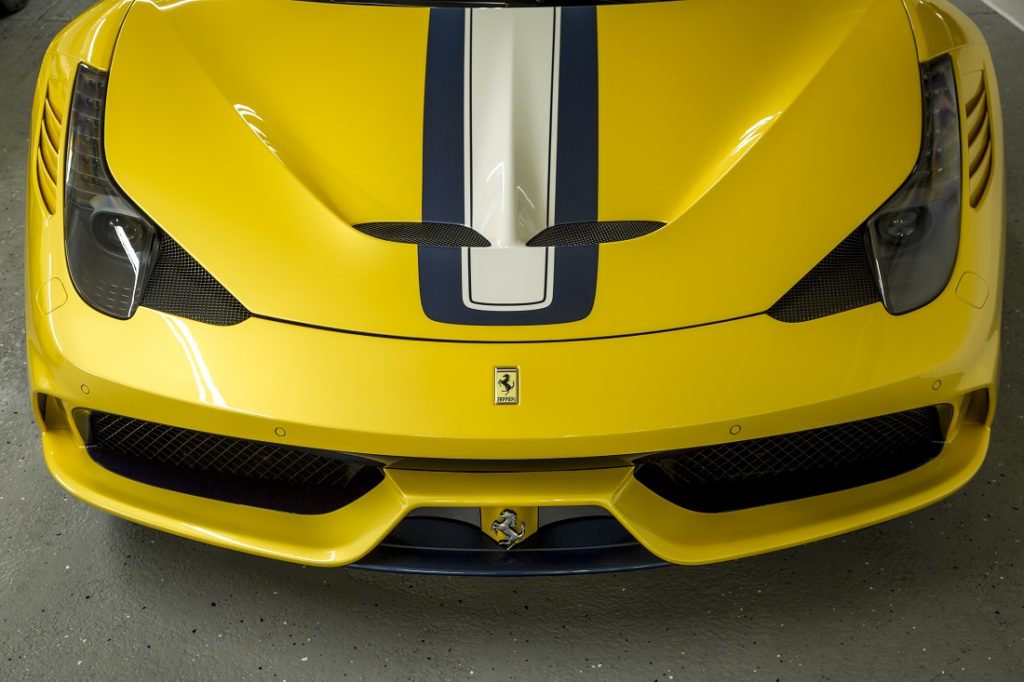
Can you share a little bit about networking, how reputations are important and how it can affect your business?
When I meet people, they know me as David Lee with Hing Wa Lee Jewelers which is a jewelry and watch store. That’s kind of how they see me. However, I am still human, just like you and the next guy. What makes a difference is are you a person of integrity? How do you treat people? How do you treat friends? Your deals – do you take advantage of people? There must be trust and a track record of what kind of person you are and it will bring you to the next level.
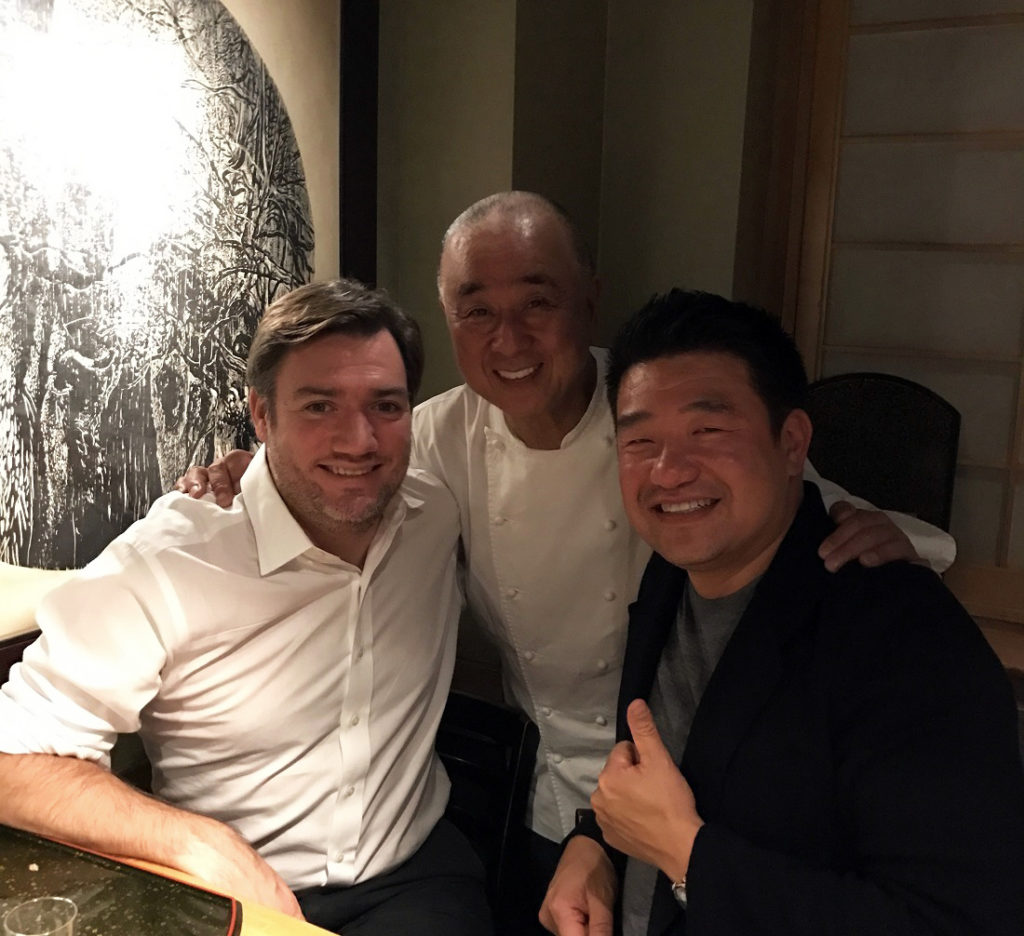
Friends introduce friends. Not always do exceptional individuals come directly to your business to patron you. They do sometimes, but a lot of times it’s a friend’s referral and somebody knows someone else so they chose to go to you. They only introduce you if they think they can trust you and you’re not going to take advantage as that could tarnish their own reputation. You’re not going to cheat their friend because everybody wants to protect that.
I’ve been at this game for a long time. A lot of times, you cross paths with various people around the world and thinking back, when I first started, I wouldn’t imagine that I would be so friendly with all these people or be on the Jay Leno show, let alone three times. It’s funny where life takes you and how the path brings you to meet different people and people that I will meet in the future.
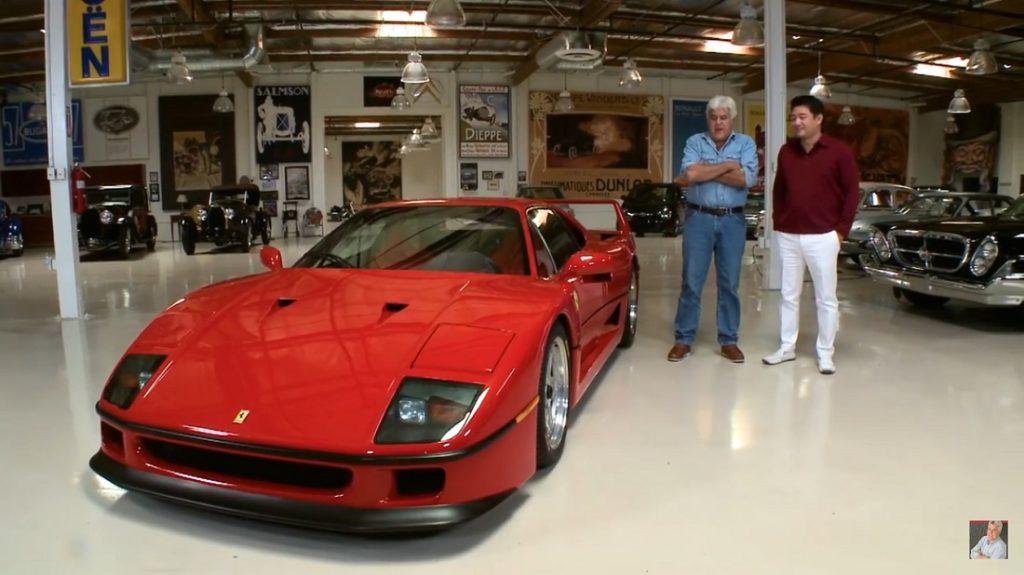
One thing I do know is nobody wants to meet someone that is a tricky guy. Nobody wants to be a friend with the person that has a track record of taking advantage of people. When you Google them, there are a bunch of law suits or people with negative feedback. Just like in politics, you might have done something twenty years ago, and now it comes back up. You have to set your reputation up early on and build your resume as a person.
When you were new and didn’t have this presence, how would you network? Was there a strategy you used in terms of where you went or how you presented yourself knowing that people would not know you immediately or recognize you?
When I first started, I was young and nobody knew who I was because I wasn’t the same David Lee as I was when I was in my 20’s or 30’s and so forth. You have to get out there and I don’t mean in the clubs. Business environments are good environments. I always had an interest, because I’m more of an extrovert, to go out and explore various social or business clubs or business seminars where you get to meet people.
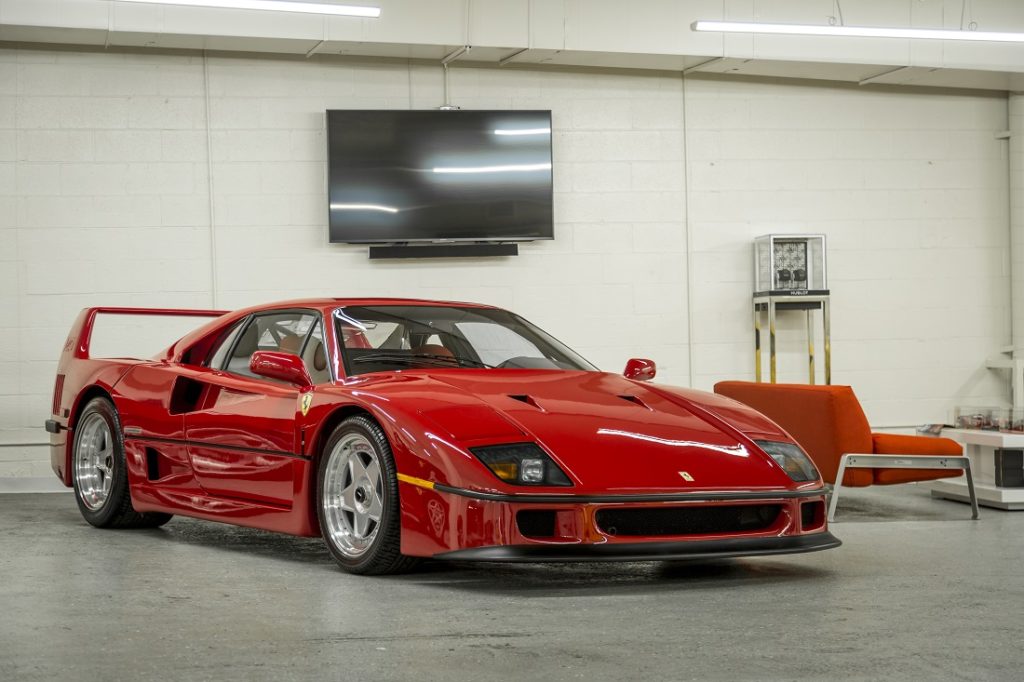
I joined YPO (Young Presidents Organization). I started my own CEO club. I’ve joined a lot of boards of various things where you join as a member. I became an L.A. Sheriff member, various Chambers of Commerce, the various Asian professional groups, and I met people. Now the trick is that as you meet people, you need to keep in touch. it’s a lot easier now thanks to social media to keep in touch. When I was first starting networking, we didn’t have social media. When you first meet somebody, that’s almost like your business card. The image of yourself you portray to people that talk to you in the first five minutes, what do they perceive you as?
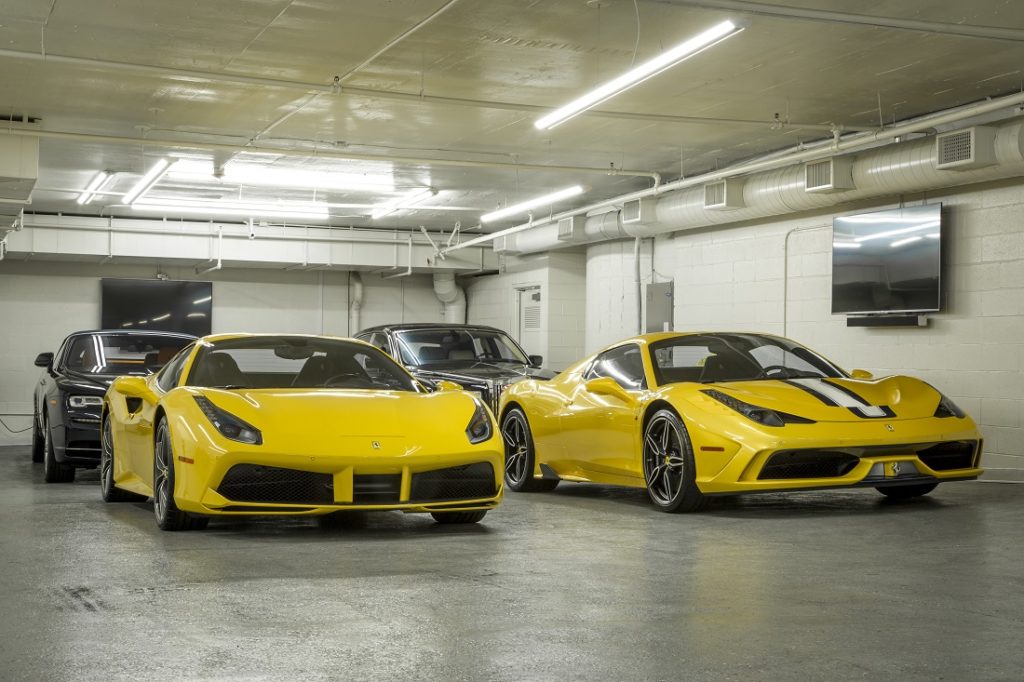
If you present yourself in a certain way, that person is going to ask their self, “Okay, do I want to continue to associate or be friends with this person?” That three to five minutes, you have to tell yourself and premeditate to yourself what you are going to be to the people out there that you meet. I acted the same way towards everybody that I met and a lot of people wanted to stay in contact with me. Again, that was before social media and therefore, as time goes by, you build up your Rolodex or your contacts of people that you know. Currently, that is one of the skills I think some people are born with more than others. I do have the skill of being able to build networks of people.
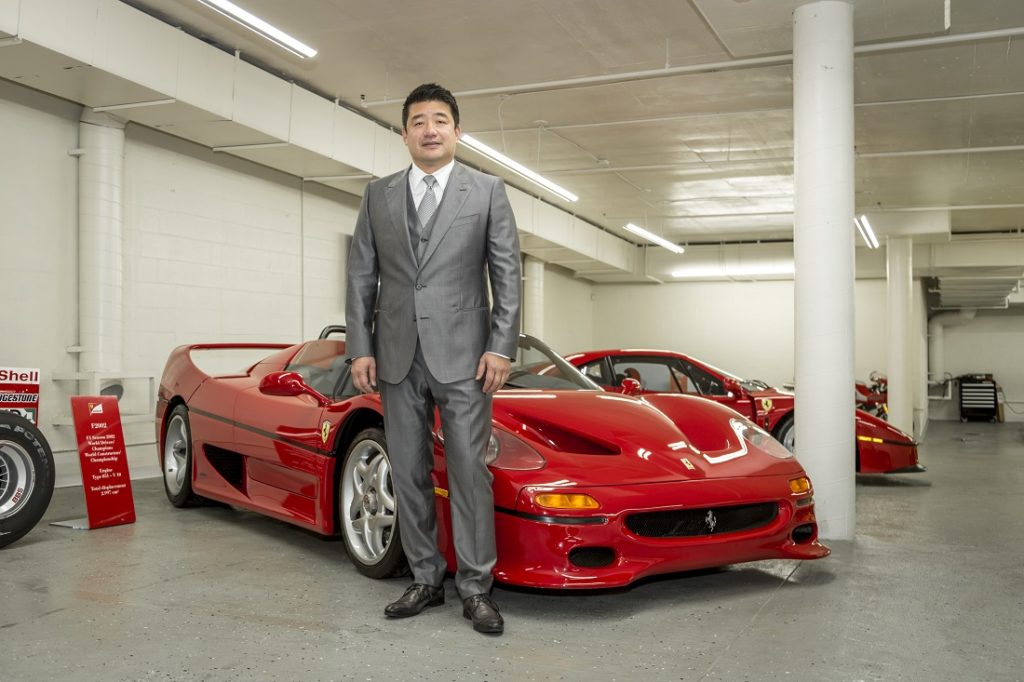
I do know a lot of people. There are certain things that come up. I may know somebody that can help me solve that problem or know some knowledge that they can tell me to help me make a better decision about those areas, which I’m very grateful for.
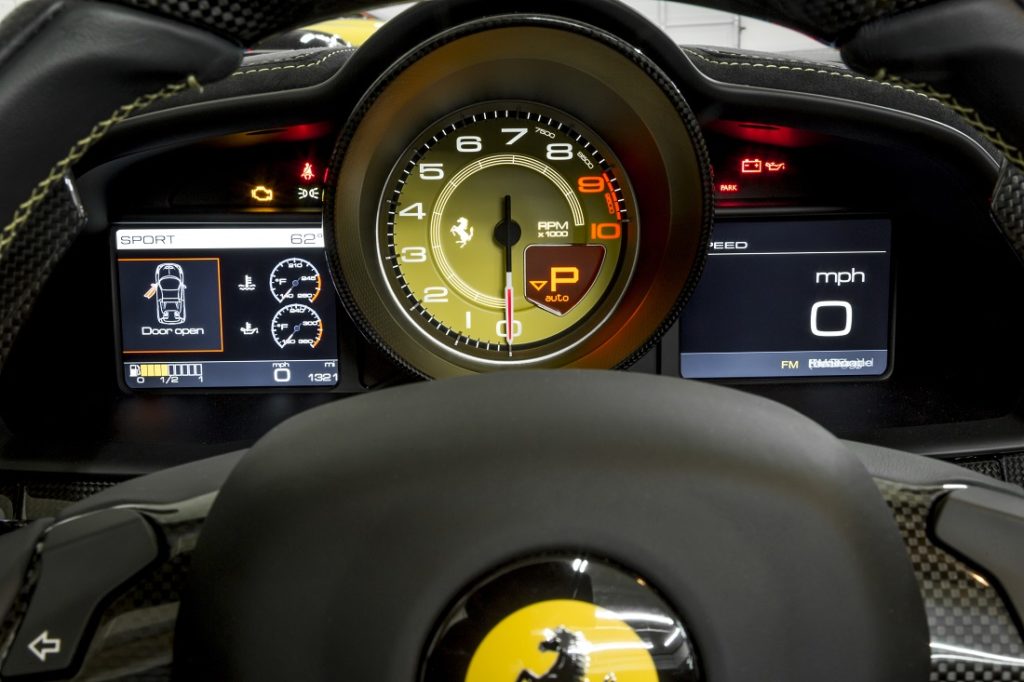
You have a major love of exotic and classic cars; how did this start and where has it brought you?
The story starts off when I was in high school, I had a Lamborghini Countach poster on my wall. We all wanted that car. I did end up buying a Lamborghini Diablo at 29 years old. Then I bought a few Porsches. I had a 911 and a 993 Turbo, which I regretted when I sold it. I’ve purchased an F355 Spider and various other cars like my BMW M3.
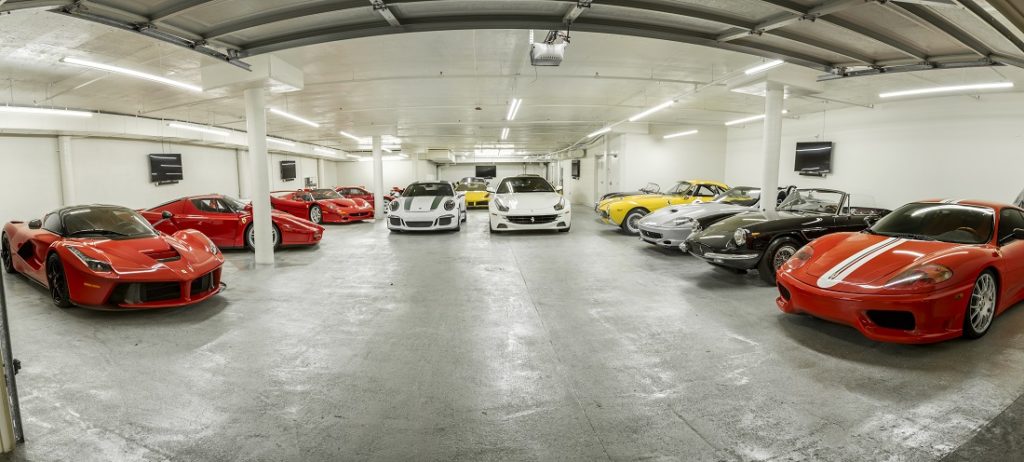
I’ve always been into cars. At some point in my life, I had enough money and I wanted to have the best car from each of the top brands. So, for Ferrari, I bought an Enzo. For Porsche, I bought a Carrera GT. For Lamborghini, I bought a Diablo. I was happy.
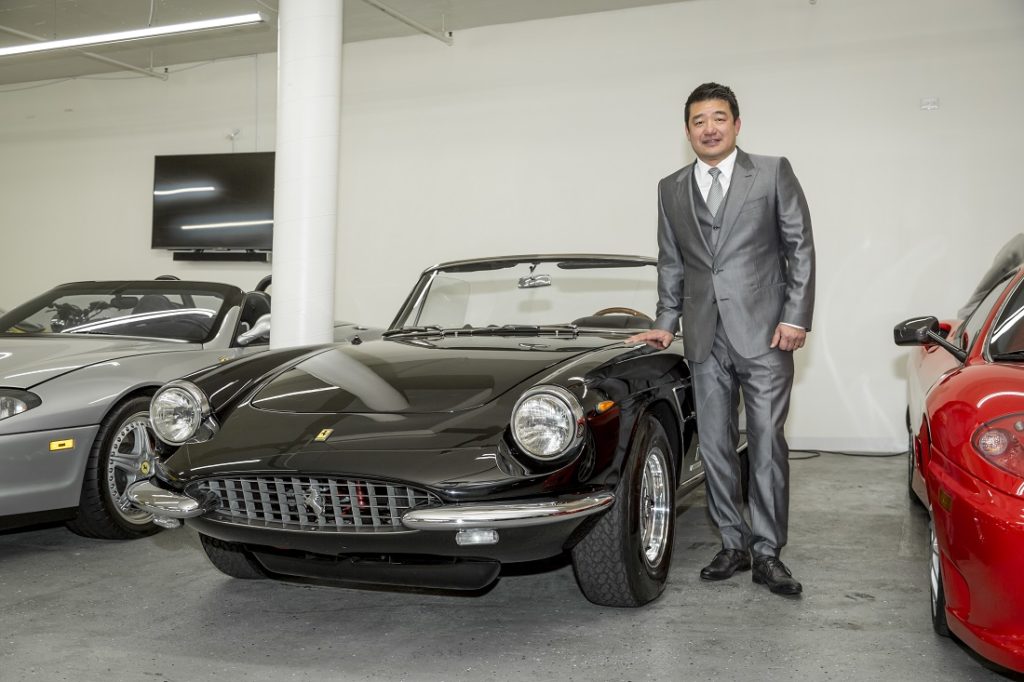
What really then happened was I went to my friend’s house who had a Christmas party. I went to his garage because he wanted to show me his new toy which was a Jaguar E-Type convertible. Now, I remember looking at it, it was so cool. The classic car never really appealed to me before but maybe now that I’m older, it did. That night, I decided I was going to buy one. I’m going to buy a Ferrari. I didn’t know the cost, I was just going to buy a Ferrari.
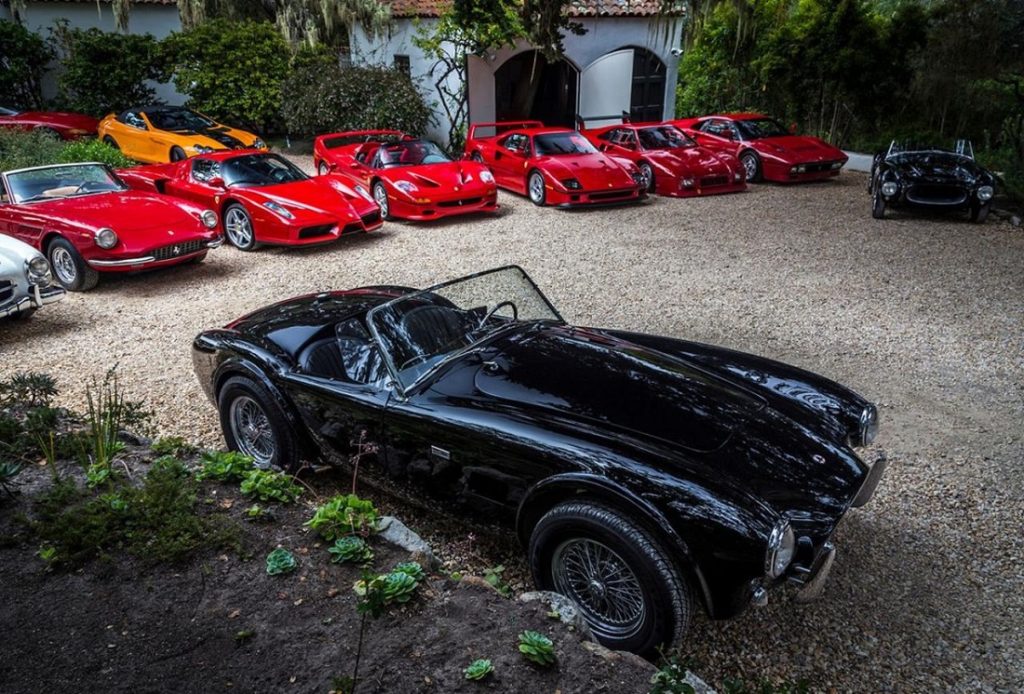
Why the attachment to the brand Ferrari? Is there anything that particularly sticks out to you that has made you love this brand more than others?
I started to look in to buying a Ferrari and that’s when I discovered the amazing history of Ferrari. Next year is the 70th anniversary of Ferrari and their racing heritage. They have a lot of models that are very collectible and very valuable. This game has been played for three decades. I didn’t develop this.
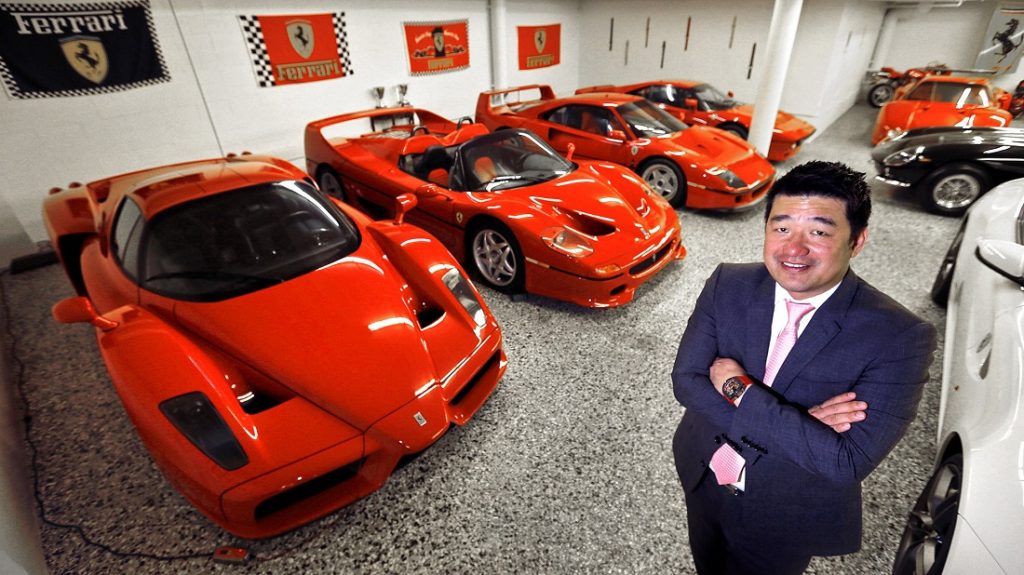
The Europeans and the American collectors have been collecting these cars for over thirty years. You can see the increase of your investment. With that in mind, I wanted to do plenty of research so that I would be knowledgeable enough to talk to brokers to get my first one, my 1965 275GTS. With the research that I did to buy that car and the kind of the entrepreneurial mindset that I have, I saw the investment value of this. What’s better than having something that you can look at and can also drive and have fun with it? It becomes a lifestyle. What’s better than that? I thought I found the greatest thing.
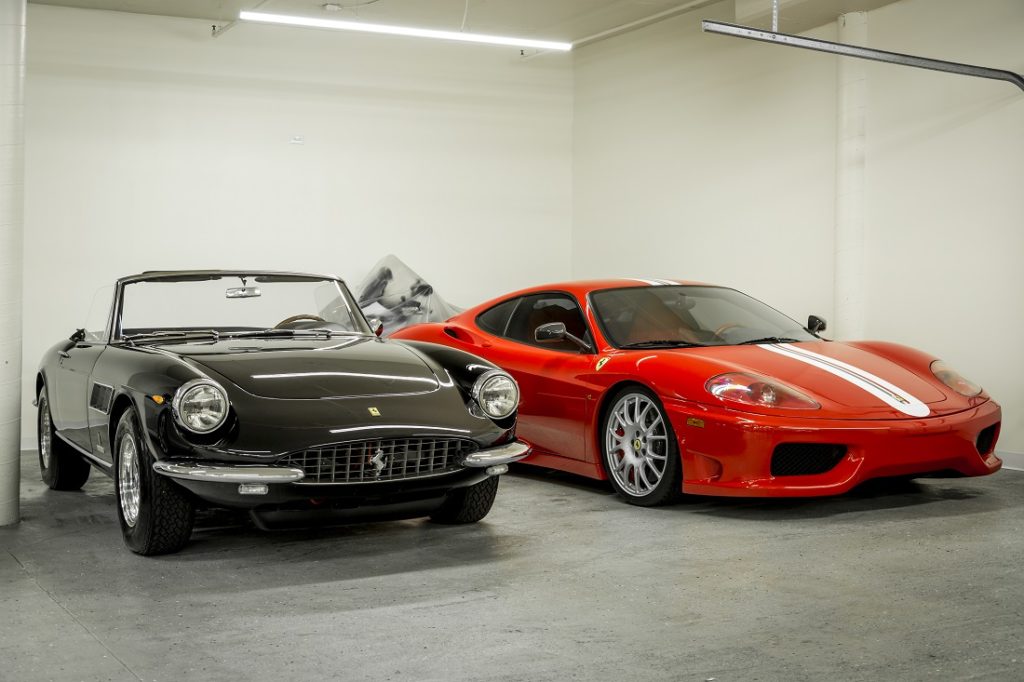
Do you have a strategy you used when you began your collection?
I decided to invest in classic cars and super cars. My strategy was to buy the super cars first because I had the Enzo so I figured, why don’t I collect the rest of them, even the LaFerrari. Also on the classic, I wanted to start with a Ferrari 250 Lusso, 330 GTS, Daytona Spyder, a 275 GTB, all of them. I had a thought that I wanted to be important to Ferrari for the new cars because the new limited edition cars were also important and the only way to be important to Ferrari is – besides buying their cars – to at least catch their attention. How would you catch Ferrari’s attention? It’s such a big company. I had a new strategy that I would be the guy that only collects Ferraris, that only drives Ferraris, and drive those Ferraris seven days a week.

That was my initial strategy. I thought that somebody crazy like this might catch their attention, would catch the dealership’s attention, would catch Ferrari North America’s attention, and Italy and Maranello’s attention. I was right. Even from social media, it’s Ferrari Collector because that’s what I wanted to fully invest and collect. I sold my Carrera GT which, looking back, you say, “Wow, I shouldn’t have sold it so quick”, but I made money on the others so it doesn’t matter. I sold my Diablo to a good friend so I see it all the time, but then I kept the Enzo. I sold everything else. I wanted to strictly invest in Ferraris.
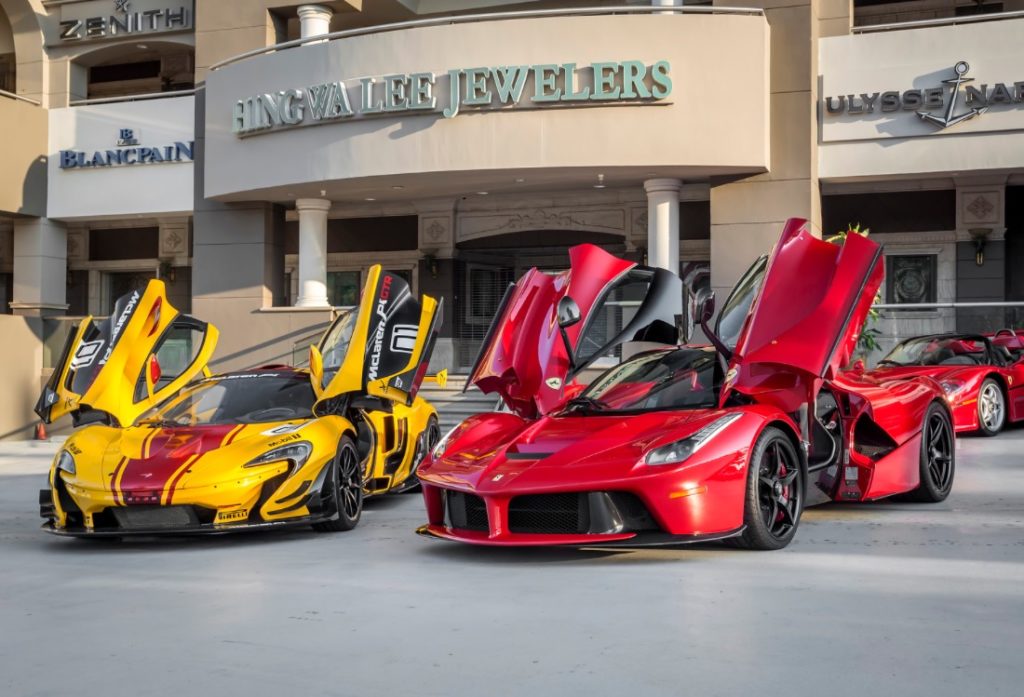
It’s a safe investment. You know they all go up in value and there’s a lot of models to collect. Obviously, you know that I have more than only Ferraris. I have Pagani, I have Porsche, Rolls Royce, and others. I think that after three years, I have established my relationship with Ferrari. They are not so much like, “Oh you can’t have other cars either.” They are okay that you collect because they want you to have fun. They are not like, “You only can collect Ferraris so you can’t buy from me.” I’ve already developed and established a relationship with all the upper management and down the line and they know where my loyalty is with Ferrari. I buy every model they have. I collect.
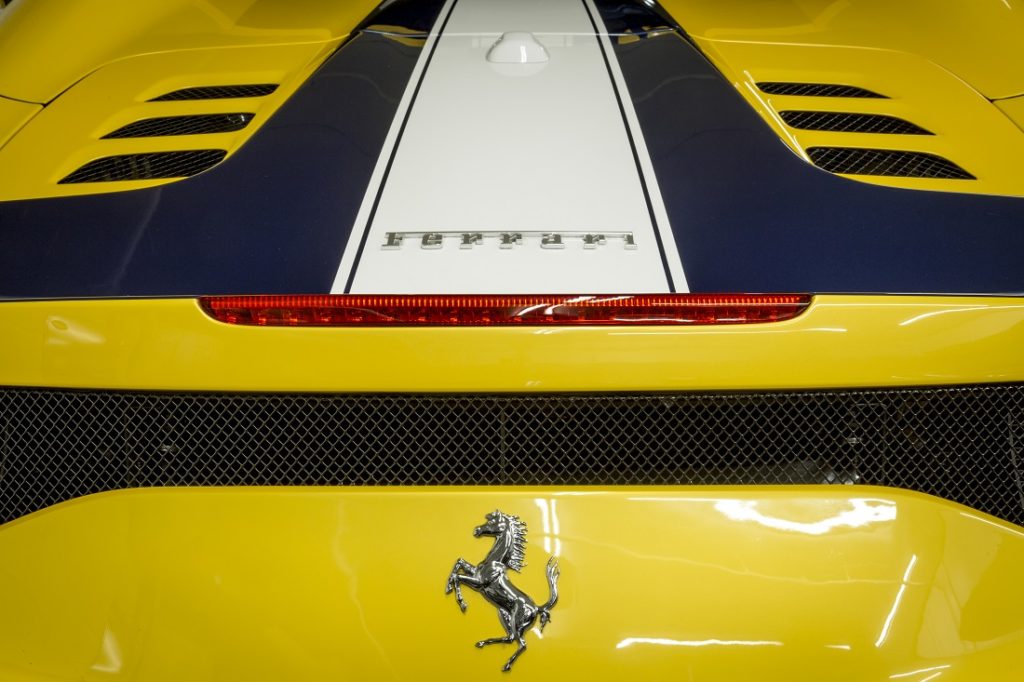
“I REALLY THINK THAT THE MOST LOGICAL THING TO DO IS PICK AN INDUSTRY OR INTEREST THAT YOU LIKE AND GO FIND A COMPANY AND WORK FOR SOMEBODY IN THAT COMPANY. WORK, DO A GOOD JOB, BUILD YOURSELF UP WITHIN THE COMPANY. BE IN THE POSITION TO MEET CUSTOMERS, MEET OTHER COLLEAGUES, AND UNDERSTAND HOW THE COMPANY WORKS. LOOK FOR OPPORTUNITIES.” – DAVID LEE
You have such a passion as a car collector; can you tell us a little about your collection and how you utilize it?
Each one has character. I bought most of these cars within the last three years, so everything was top dollar. They weren’t like I bought a 275 GTB for $8,000 and now it’s worth $3 million. I bought each one after it had gone up in value and market price. When you spend millions and millions of dollars on a car, you better like it enough. There better be something about it that is different.
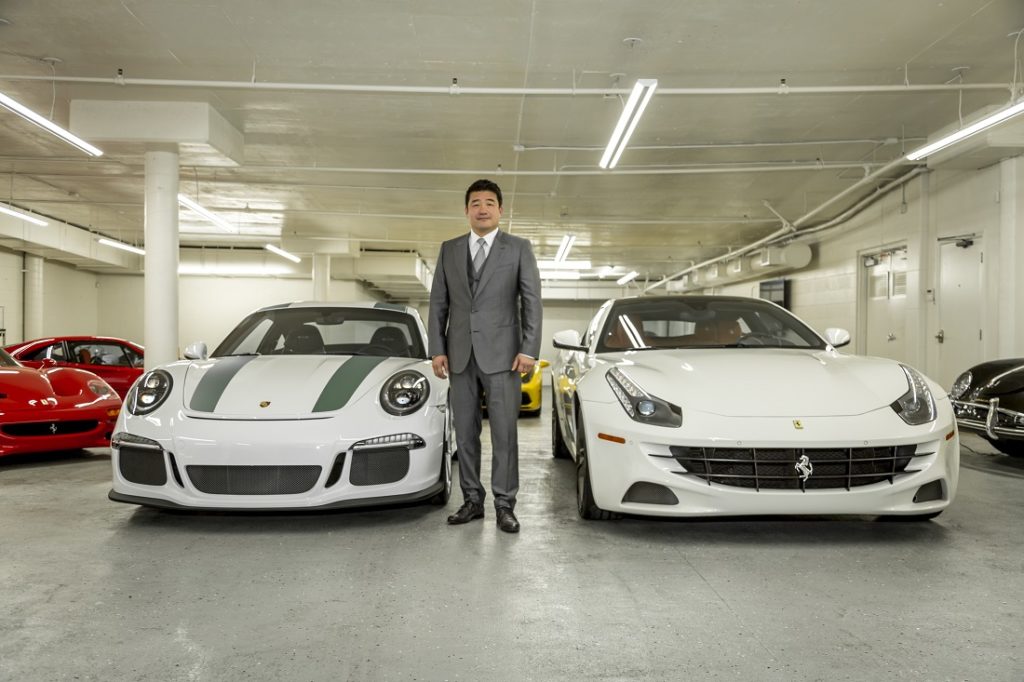
My classic cars, for instance. I have a 250 model. I want to have a 330 model, a 275 model, and a 365 model. Different engines so they would have different driving experience. Some are convertible, some are coupe. Some are competition cars and some are not. They are road cars. Every one has a different purpose; they drive differently; they show differently at different prices. The super cars too. The LaFerrari; if I had to go on a track, to really have to perform, and have a good time, I would take the LaFerrari because the performance on it is amazing and it makes you a better driver. It allows you to have better times.
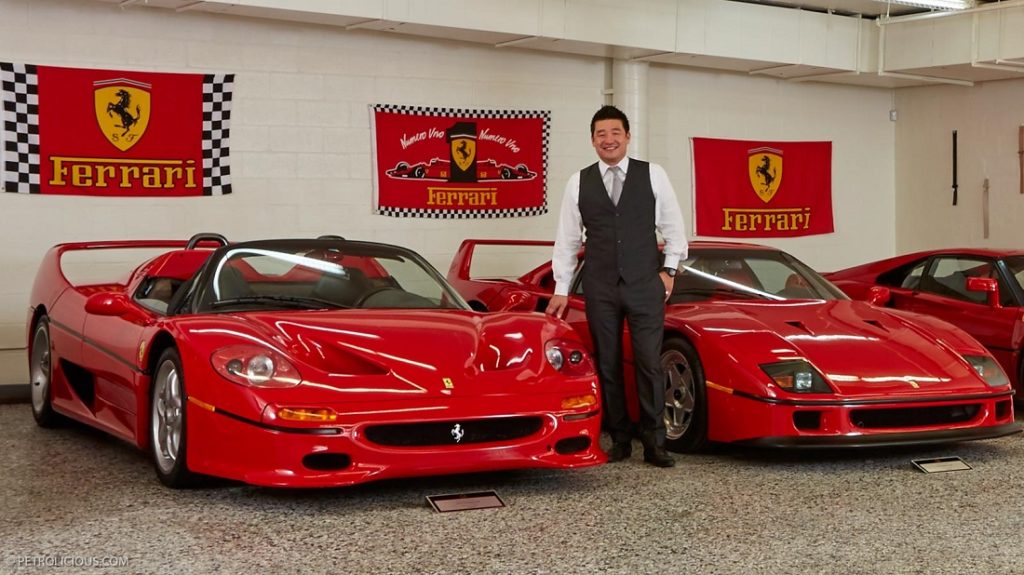
If I want to drive a super car to just have fun on the street, the F50 is the best choice. It’s a convertible and a manual gear box. You can hear the F1 engine and it’s a fantastic experience. The F40 is just for balance. I certainly cannot drive to the level that the professionals can, but it’s supposed to be good, and it’s still fun to drive. The most comfortable car would be the 280 GTO, among the super cars. It has leather interior, it fits like a glove. It’s easy to get in and out of and easy to drive. You don’t have to be in race mode to drive that car.
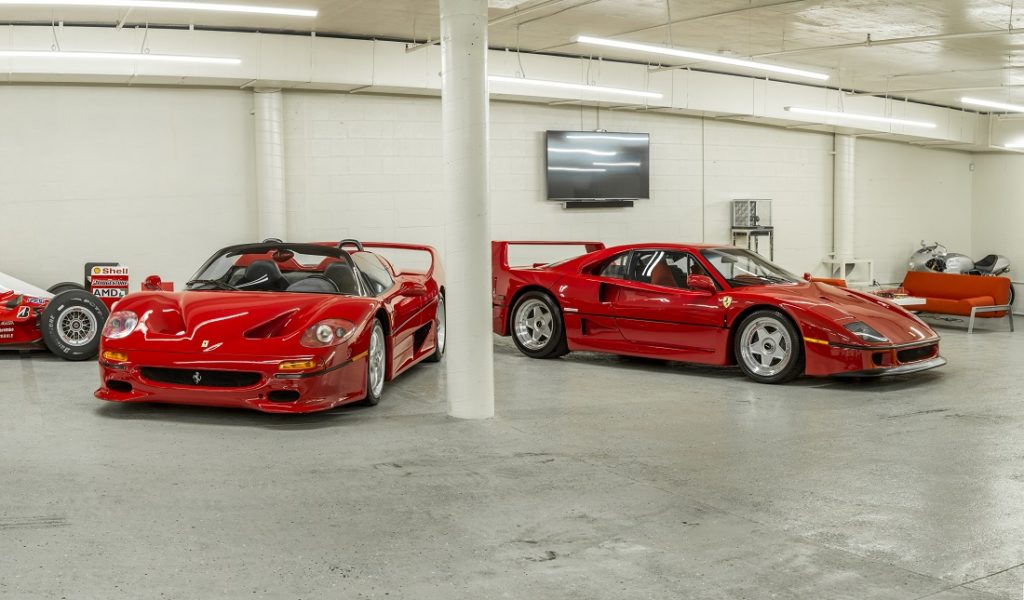
So, it just depends on where I go and what it is. If I go somewhere that wants to draw a big crowd, a Pagani Huayra would be crazy. It always draws a big crowd. That might be for that purpose. If I want to drive a super car but not necessarily let people take a lot of notice, the 911 R. People think it’s just another Carrera. People that do know, what they think is it’s the greatest 911. On track, the 488 or the 458 Speciale – mid-engine cars. That’s a fun car. That’s more balance. As a matter of fact, Porsche just came out with a new RSR which is a mid-engine 911 – again, good for racing situations because it is mid-engine, it’s more balanced.
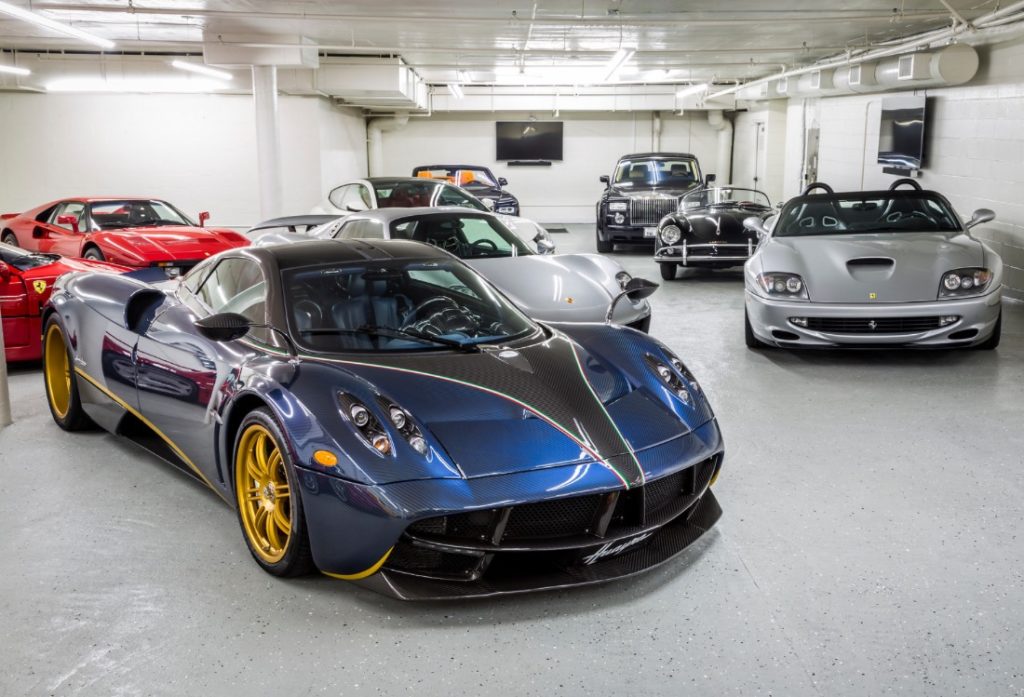
Is there a particular car you drive more often than others?
When I go to my beach house in Orange County, I like to bring my Dawn which is a four-seater convertible, perfect for my family. I drive that down to the beach area. There’s a purpose for each car, I guess I could say. It’s hard for me to say one car that would do everything, but my daily car is the FF. It seats four people and is four-wheel drive. In case I get in snow – which I never will encounter – I can drive it in the snow. It’s a V12 so it has plenty of power, there’s a rear hatch and the backseat goes down. You can move stuff if you need to. That would be the most practical car that I drive.
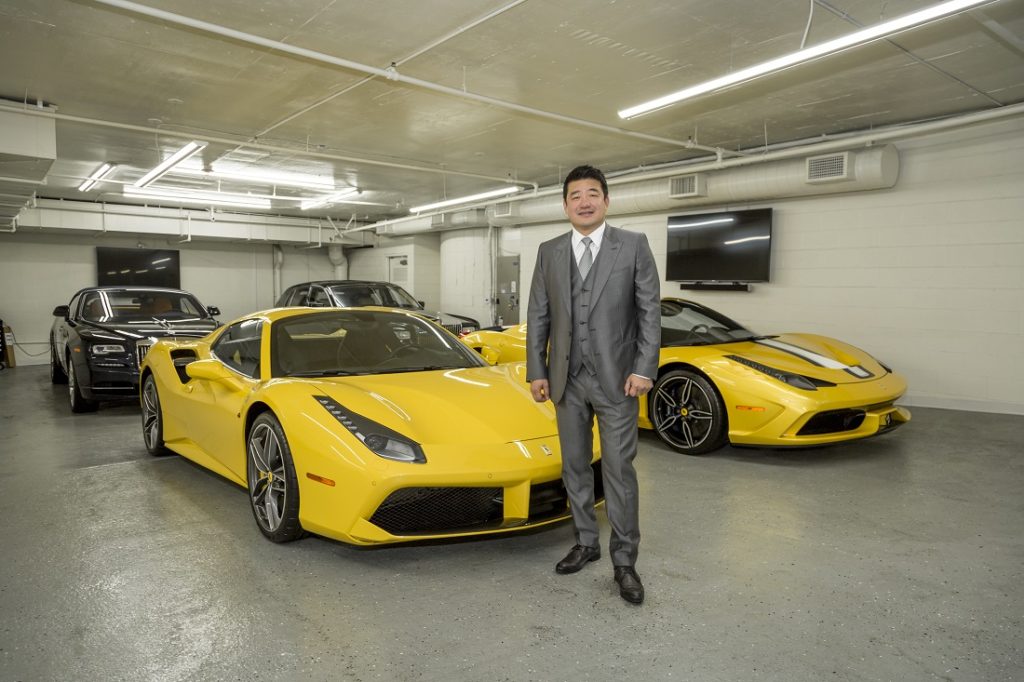
Which particular car represents David Lee the best when it comes to fitting your character?
At one point, I had the Lambo but I really liked the 288 GTO because that was, at that time, the first super car along with the Porsche 959. Today, among my other cars, the GTO has more sentimental value to me than all the others because there was the time when I really wanted it while I was getting driving experience and that was the one that I dreamed about so much and had impact on me. That would be the one, the 288 GTO.
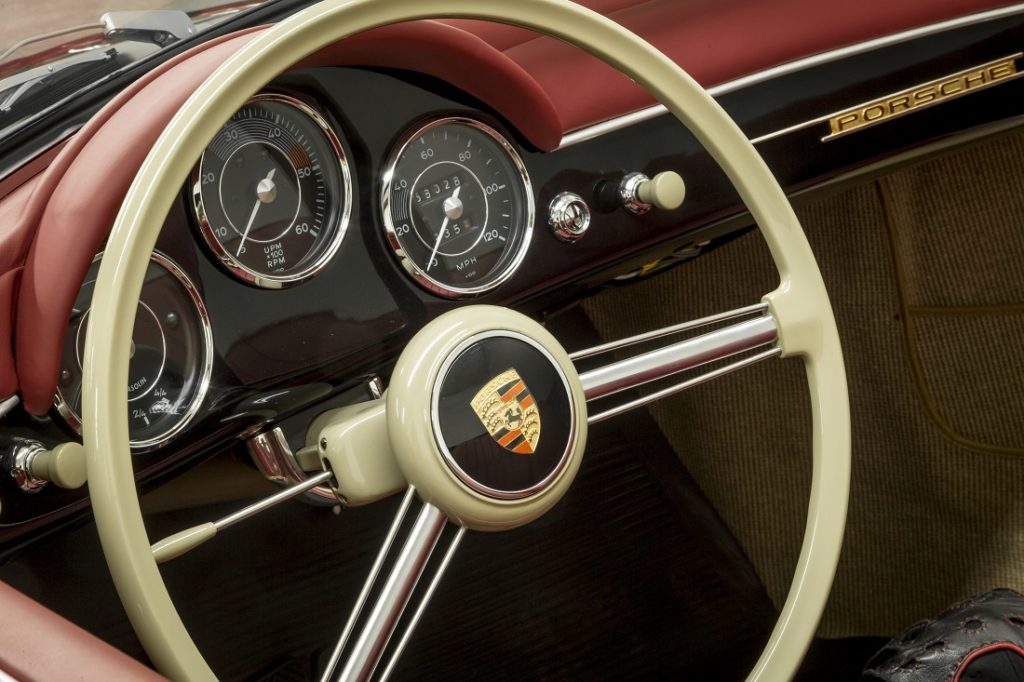
What words of wisdom can you leave with our users?
First off, a lot of people are very driven and it’s good to have that drive to start a business. I really think that the most logical thing to do is pick an industry or interest that you like and go find a company and work for somebody in that company. Work, do a good job, build yourself up within the company. Be in the position to meet customers, meet other colleagues, and understand how the company works. Look for opportunities.

Some companies are so big, they only want to touch on a certain type of business, but there are certain areas where there’s money to be made but they don’t want to expand to. It might open something up that would be good for you to take on. If you move on it and if you have clients already, your clients may go with you. If you have other colleagues that might be able to go with you because they know you and they trust you, they may join in with you. Through this whole process of learning, you get paid to do it. I think that’s the most reasonable start.
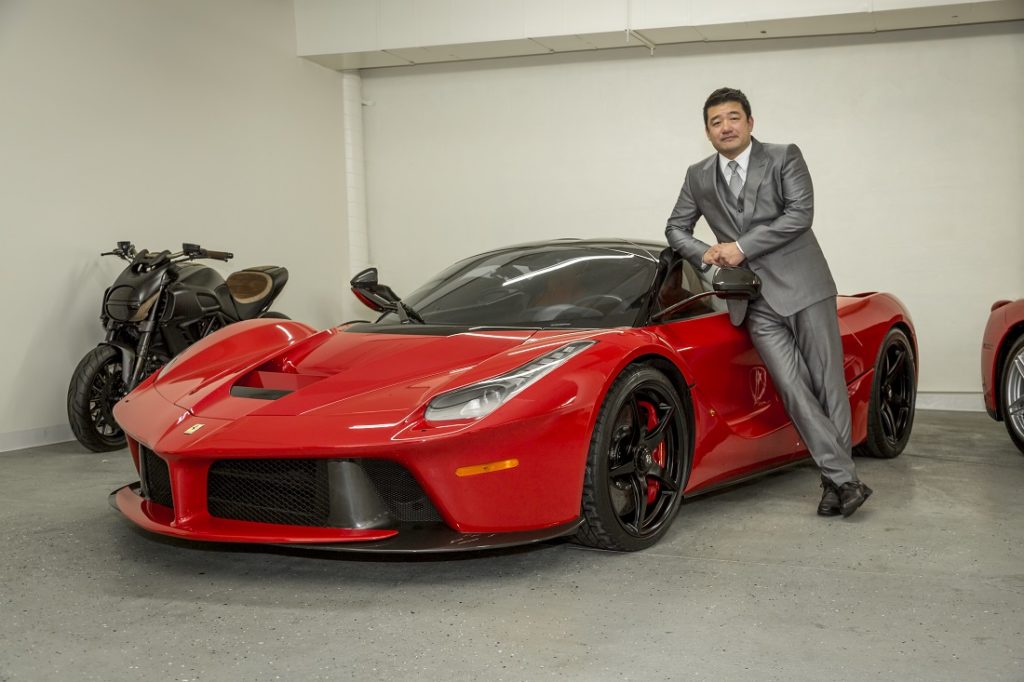
Now, a lot of people ask me the same question, and you don’t want to go out there not knowing a thing otherwise you’ll just keep hitting walls. Be smart. Work hard and do a good job. Find opportunities and then take it from there. You might switch jobs a few times before this happens, but that’s perfectly fine. People don’t want to do business with somebody that is brand new with no experience. They want to see a track record. When you work for somebody and you show some competency in that work, that becomes your new record. Therefore, they can trust you to do that by applying my three golden rules – working hard with perseverance and integrity. I think that a lot of people that I’ve talked to who are successful would agree 100% with what I’m saying. That would be my advice.
